If you were intrigued by Civilization 6, there are countless similar games that can keep you fascinated even further.
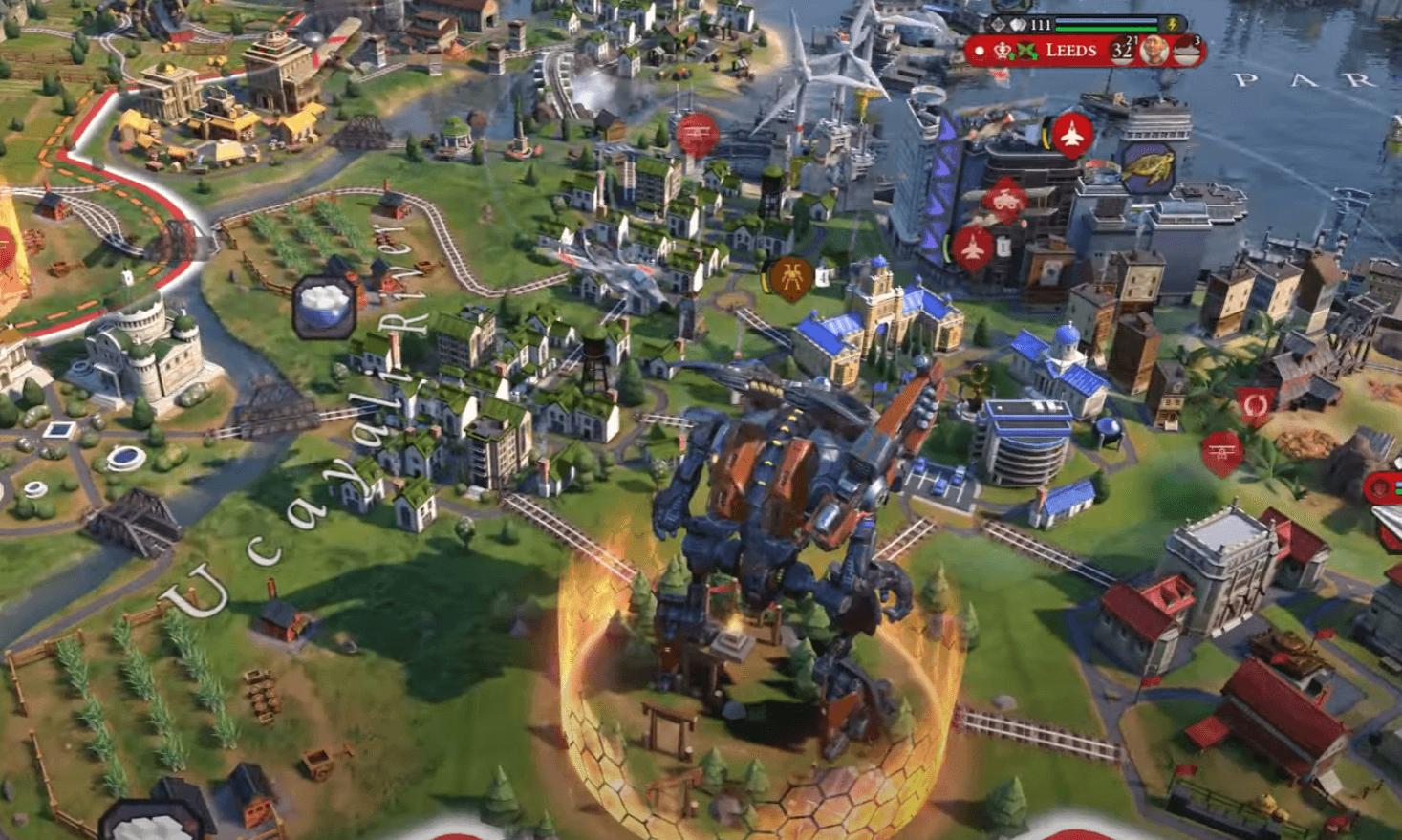
Civilization 6 is a strategy-based game that continues to carry forward the standards set by its predecessors from the award-winning franchise. As the player, you will take control of a burgeoning civilization, guiding its development through history from humble beginnings in the Stone Age up to the modern era, or even beyond to a speculative future. With an array of leaders to choose from like Cleopatra of Egypt or Trajan of Rome, each providing distinct advantages and strategies, every game can offer a unique experience. The game elegantly blends warfare, exploration, diplomacy, and city management, providing a rich and complex experience where your choices significantly impact the progression of your civilization.
Now, if you're attracted by the strategic depth and historic flavor that Civilization 6 offers, there are plethora of similar games that might be up your alley in the grand strategy genre. Games that involve resource management, strategic planning, intricate decision making, and sometimes even diplomacy with other players. They can transport you to diverse eras and places - from medieval Europe to ancient China, or even to imaginary worlds of fantasy. The beauty of these games lies in the sense of absolute control they give over your virtual empire, and their ability to completely immerse you into the unfolding narrative that you get to shape according to your dictations. Exciting, isn't it?
Stay with me for just a moment longer as I'm about to reveal a carefully curated selection of grand strategy games that would perfectly cater to your gaming preferences...
25. Age of Wonders: Planetfall
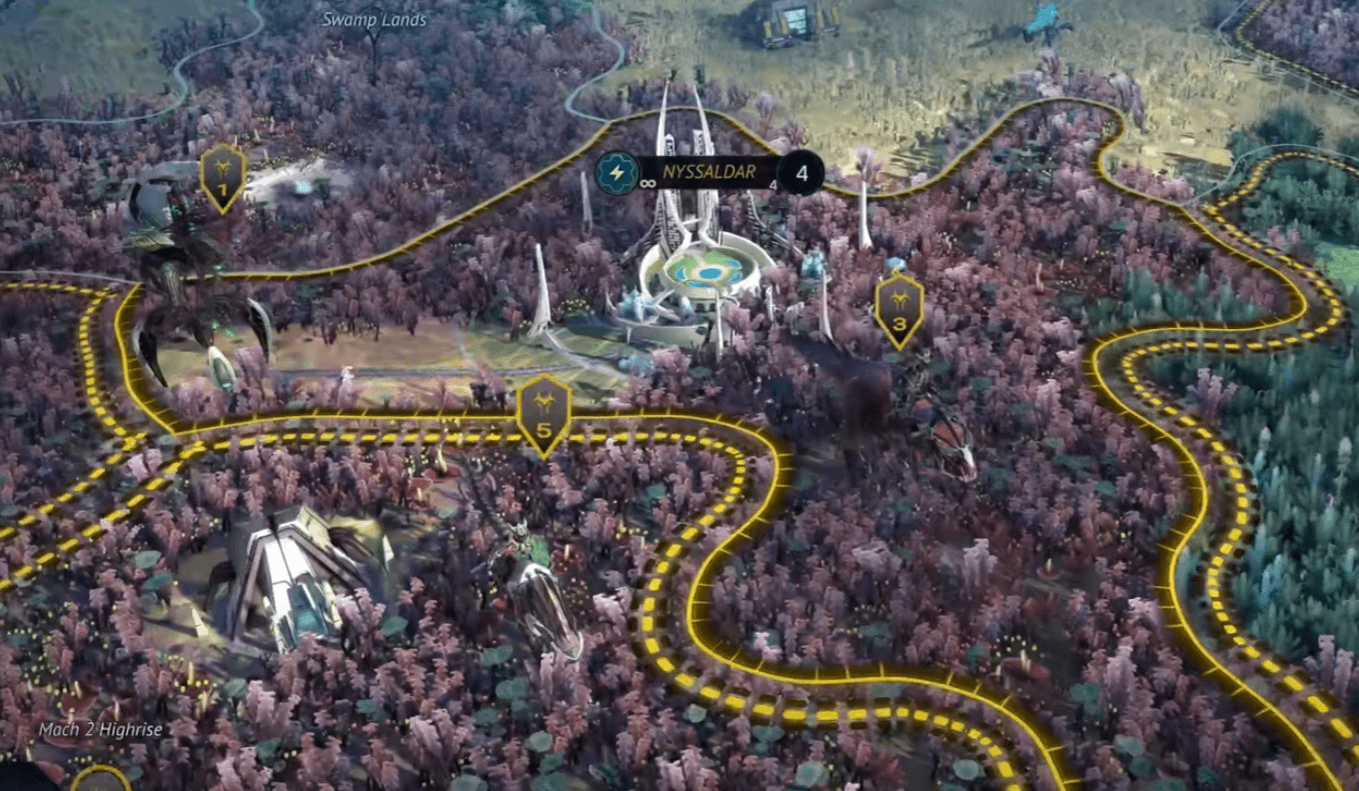
So you enjoyed Civilization 6, right? Then I believe you'll appreciate Age of Wonders: Planetfall. The two share a lot in common, especially their grand strategy and 4X elements. Both games place emphasis on aspects like eXploration, eXpansion, eXploitation, and eXtermination. In Planetfall, like Civ 6, you are in charge of growing your empire, developing technology, managing diplomacy, engaging in combat, and generally building your civilization from the ground up. All of these are accomplished while keeping an eye on the unique, randomly generated terrain.
Another commonality between the games is the depth and intricacy of their systems. Both games facilitate strategizing and planning in your bid to take control of the world (or solar system), and the execution of your strategies can be immensely rewarding. However, Age of Wonders: Planetfall distinguishes itself with its deep, tactical combat system, which adds layers of complexity and richness to the game. It has a detailed combat system that may remind you of the grid-based tactical battles of XCOM. I'm sure you'll get the same thrill out of this game as you did with Civilization 6.
Age of Wonders: Planetfall is available on PlayStation 4, Xbox One, and PC, typically priced around $40 USD.
24. Endless Legend
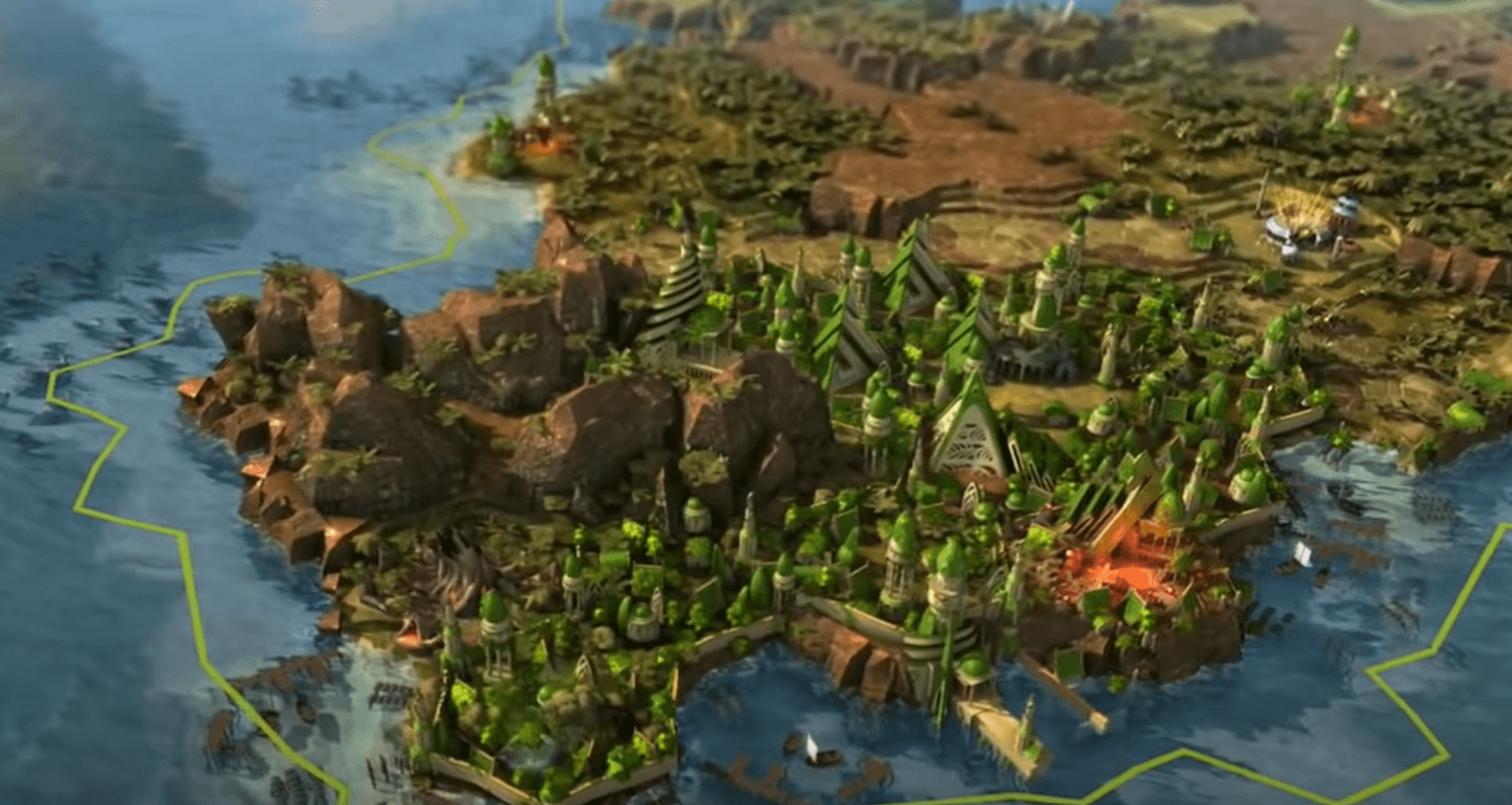
Just like Civilization 6, Endless Legend is a turn-based strategy game where you lead a civilization from its infancy to becoming a powerful empire. Both games have excellent map designs and varying races to choose from. In Endless Legend, you have diverse factions each with their unique play style and backstory, quite similar to civilizations in Civ 6. At first glance, you might get the impression that Endless Legend is strictly high-concept science fiction due to its settings, but at its core, it plays like a game in Civ 6's mold, with city-building, technology research, diplomacy and conflict.
Moreover, Endless Legend, like Civilization 6, has a deep and intricate strategic gameplay involving resource management, terrain advantages, and diplomacy. Since it also offers varied ways to win – military conquest, science or diplomacy just like Civ 6, it's up to you how you want to lead your fiction to prosperity. Strategic depth is also mirrored in the intricate tech trees, where you cannot research everything in a single playthrough, encouraging repeat play and experimentation with different strategies. The game layers the gameplay in strategic decision-making, tactical battles, and resource management, like Civilization 6.
Endless Legend is available on PC and MacOS, typically priced around $30 USD.
23. Europa Universalis IV
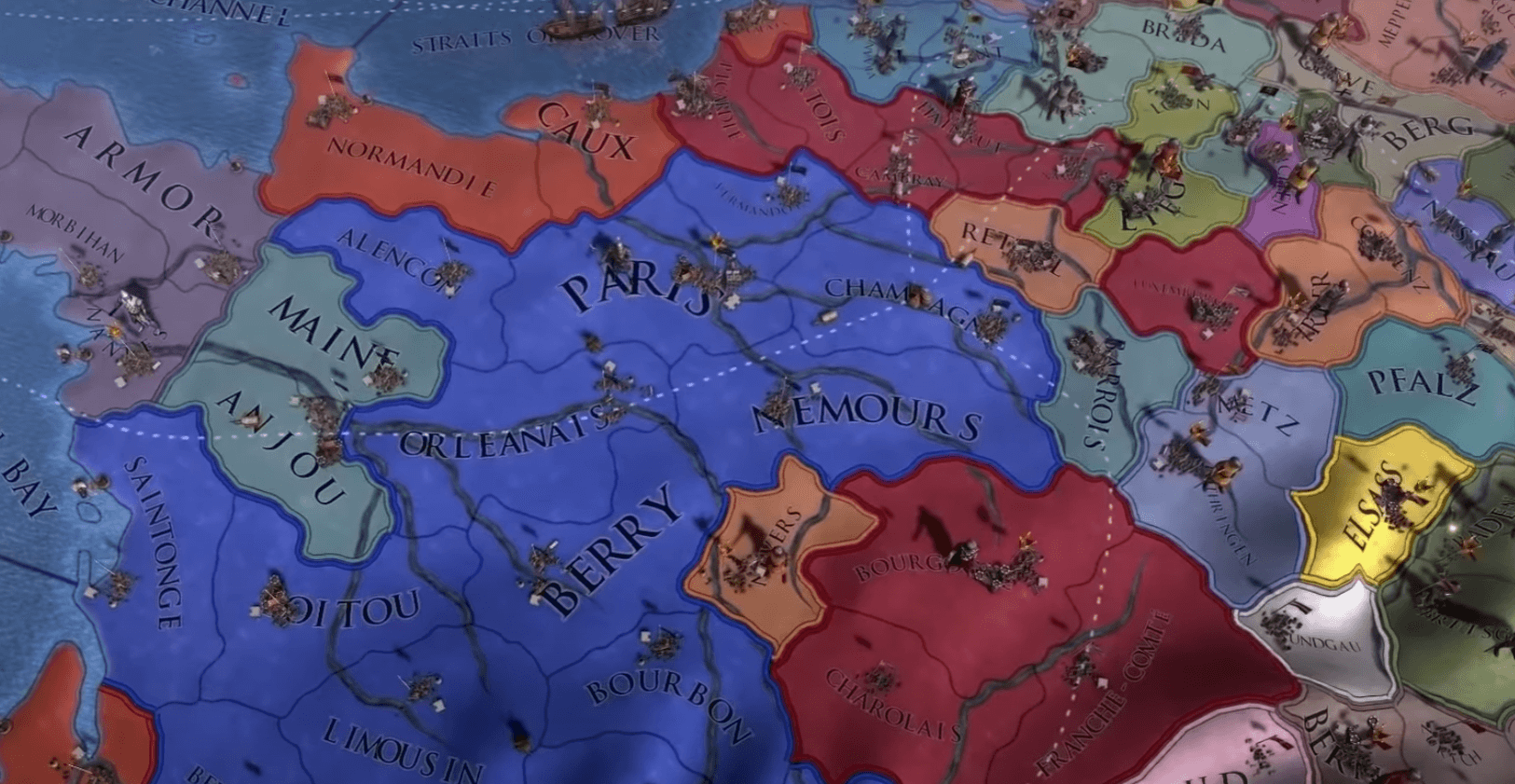
Exactly like Civilization 6, Europa Universalis IV is a grand strategy game that lets you connect with history on a very profound level. You're not only in control of a civilization's military advancements, research, and diplomacy, but a whole country's destiny is placed in your hands. Like Civ6, it allows you to craft your own narrative and history for your civilization!
Another way Europa Universalis IV mirrors Civ6 is through its stunning level of detail and scale that brings your civilization to life. This game isn't just about winning wars; it's also about colonial politics, religious conflicts, and huge doses of exploration that will bring you closer to the world you're shaping. Just as Civ6 does, Europa Universalis IV will challenge your decision-making, strategy-building, and crisis management skills, promising a truly engaging and immersive gaming experience.
Europa Universalis IV is available on Windows, macOS, and Linux platforms, typically priced around $39.99 USD.
22. Total War: Warhammer 2
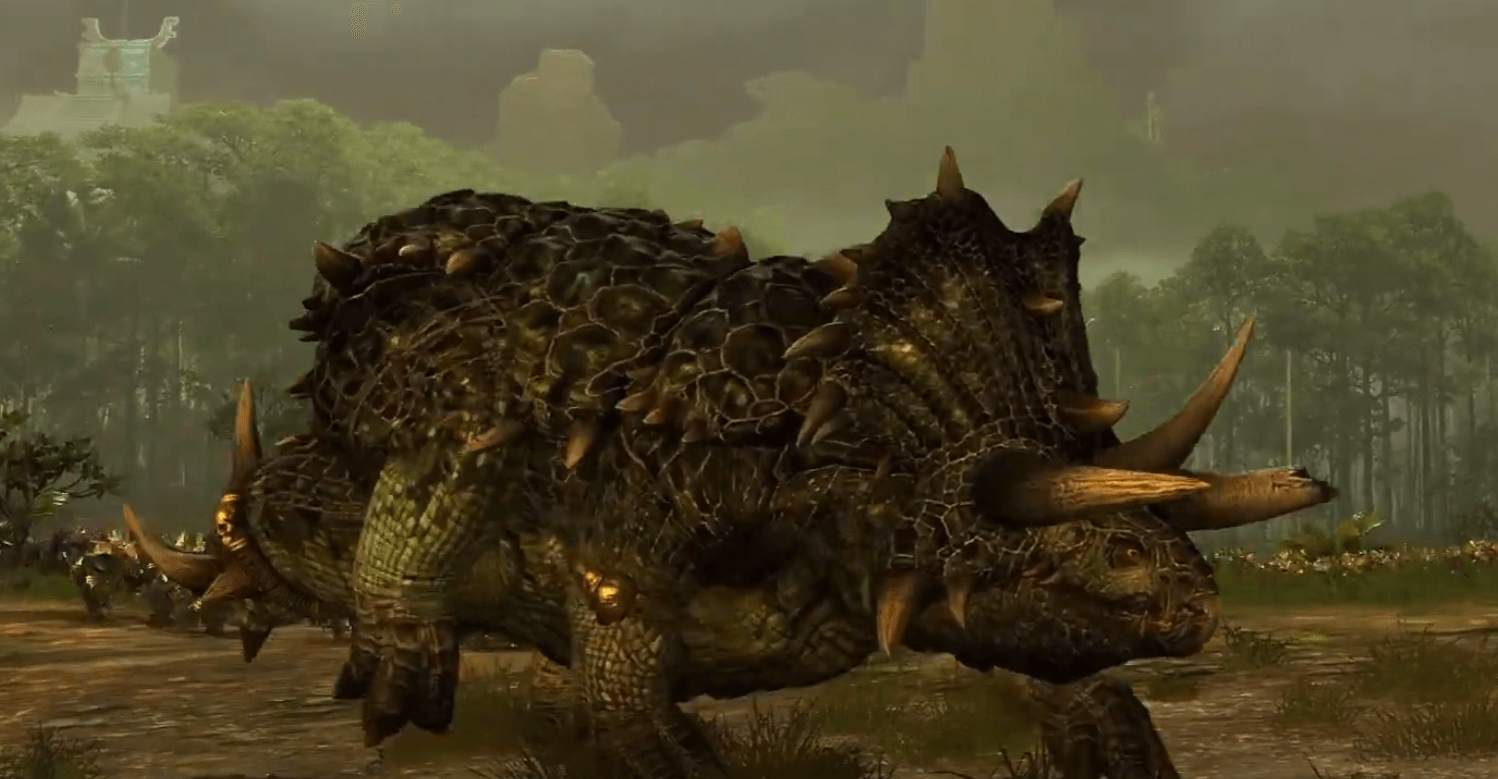
One of the core elements that make Total War: Warhammer 2 similar to Civilization 6 is the significant focus on empire building and complex strategy. Like Civ 6, TW: Warhammer 2 is built around the concept of developing a powerful civilization by managing resources, expanding territories, advancing technologies, and engaging in diplomacy or warfare with other factions. The intricacies involved in maintaining the balance of power and steering your empire's growth keep the gameplay challenging and intriguing, much like the gameplay in Civilization 6.
Another compelling aspect linking these two games is their turn-based strategy mechanism. As in Civilization 6, each move you make in Total War: Warhammer 2 is consequential and is a critical part of your long-term strategy and immediate tactics. The battles in TW: Warhammer 2, like in Civ 6, are also deeply layered, offering a multitude of tactical options, tactical nuance, and battlefield dynamics. The vast variety of characters, troop types, and skills adds another level of depth, making each engagement a unique challenge. These elements undoubtedly evoke the masterful gameplay of Civilization 6 you're familiar with.
Total War: Warhammer 2 is available on PC, typically priced around $60 USD.
21. Stellaris
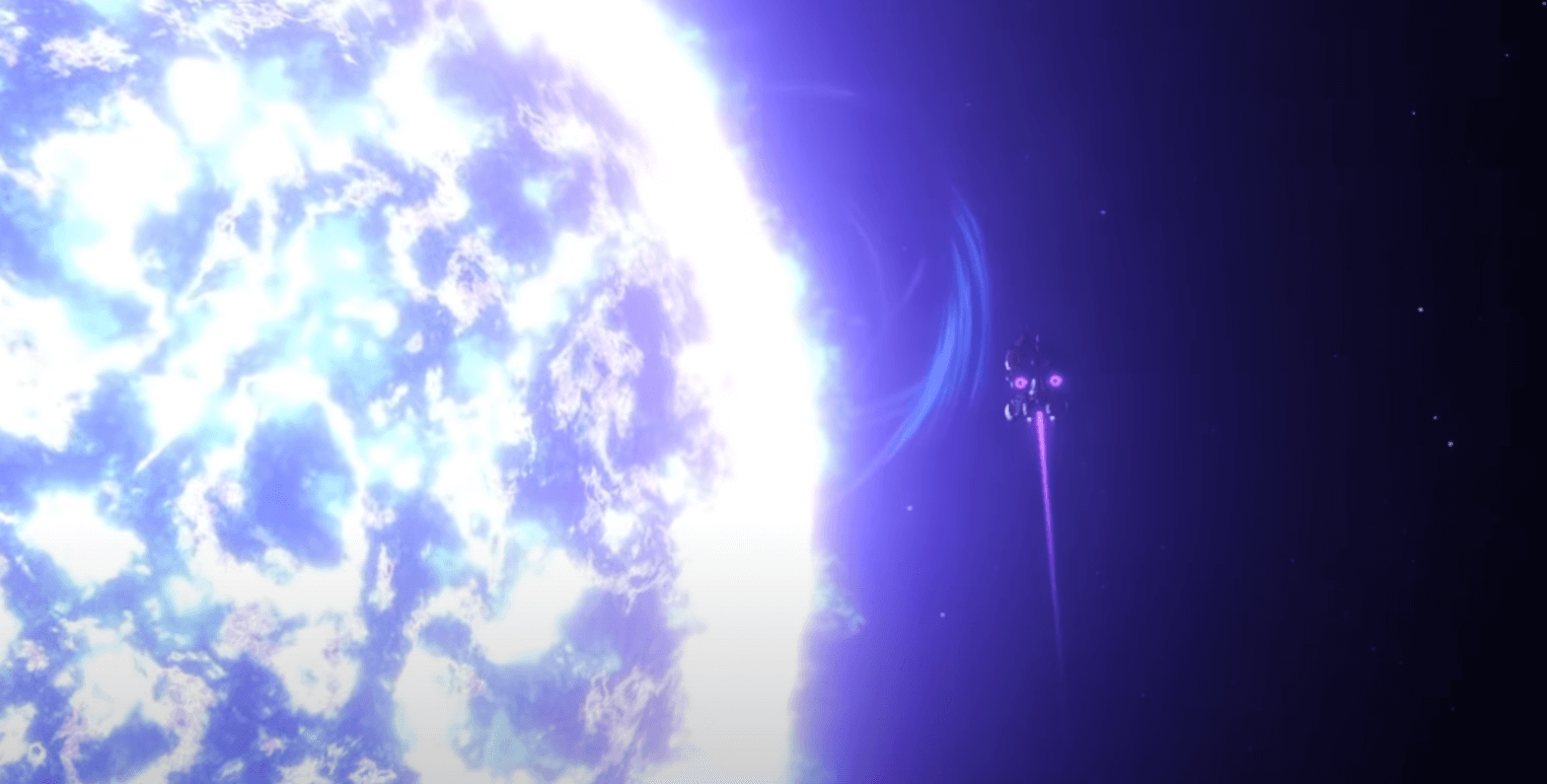
Stellaris, like Civilization 6, drops you into a world ripe for exploration and asks you to build a sprawling empire. The similarities don't stop merely at empire-building, they branch out to nuanced diplomacy, resource management, and technology research too. Just as you can choose your civilization and leader in Civ 6, Stellaris lets you create your own space-faring species, defining everything from their ethics to their physical appearance. The two games also echo in terms of providing numerous strategic options that allow for various winning conditions.
If you particularly enjoy the unfolding narrative derived from making momentous decisions in Civ 6, Stellaris won't disappoint. The emergent story-telling is where the two games distinctly parallel each other again. Stellaris' galaxy is riddled with anomalous readings to research, and alien empires to interact with, each shedding a little more light on the universe's history and current state. The many random events and quests you encounter while settling the stars cultivate a sort of procedural narrative, seldom replicated in other games, capable of total immersion just like in Civilization 6.
Stellaris is available on Windows, macOS, Linux, PlayStation 4, and Xbox One, typically priced around $40 USD.
20. Rise of Nations
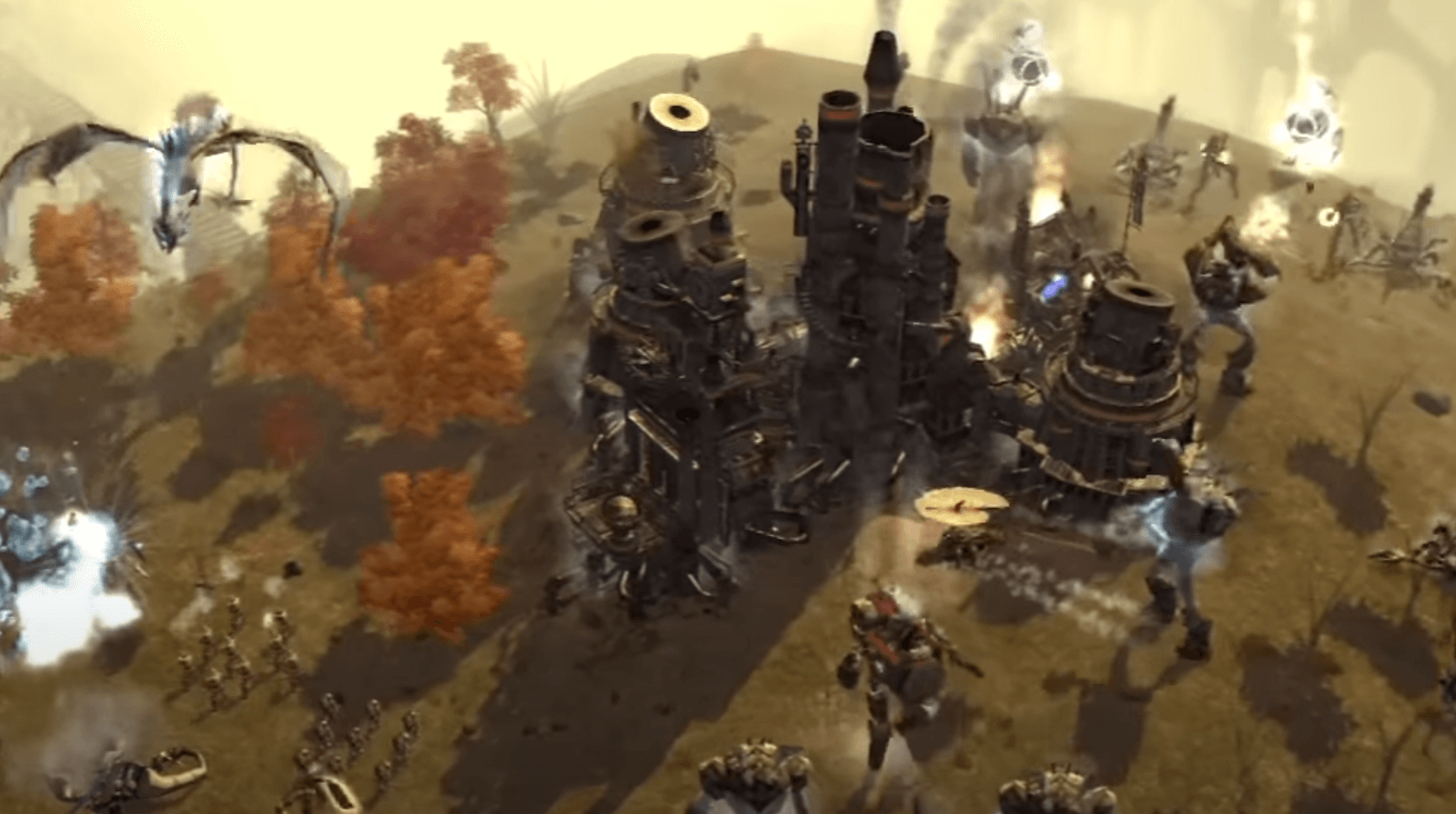
For a devoted fan of Civilization 6 like yourself, Games like Rise of Nations would definitely pique your interest. Just like Civ 6, this RTS game allows players to build and expand an empire throughout different ages. However, Rise of Nations offers a real-time strategic approach, meaning the turn-based gameplay you're familiar with gets a uniquely exciting twist. Furthermore, the game features an impressive choice of 18 civilizations for you to command and 100 different military units to control, which, like Civilization 6, enables a highly detailed and diverse gaming experience.
In terms of gameplay depth and strategic intricacies, Rise of Nations shares a lot in common with Civilization 6. The game is particularly renowned for its Conquer The World campaign, which pairs the world dominance aspect of Civ 6 with a risk-type strategy, creating a captivating and engaging game map with a host of territorial conquests. Beyond that, the game also features extensive tech trees, city building, resource management, and diplomacy, aspects that would sure scratch the same itch as Civ 6. But perhaps the most notable aspect is that Rise of Nations also presents historical accuracy in its gameplay, mirroring Civilization 6's careful attention to historical details and thematic authenticity.
Rise of Nations is available on platforms such as Steam and Microsoft Windows, and it is typically priced around $19.99 USD.
19. Anno 1800
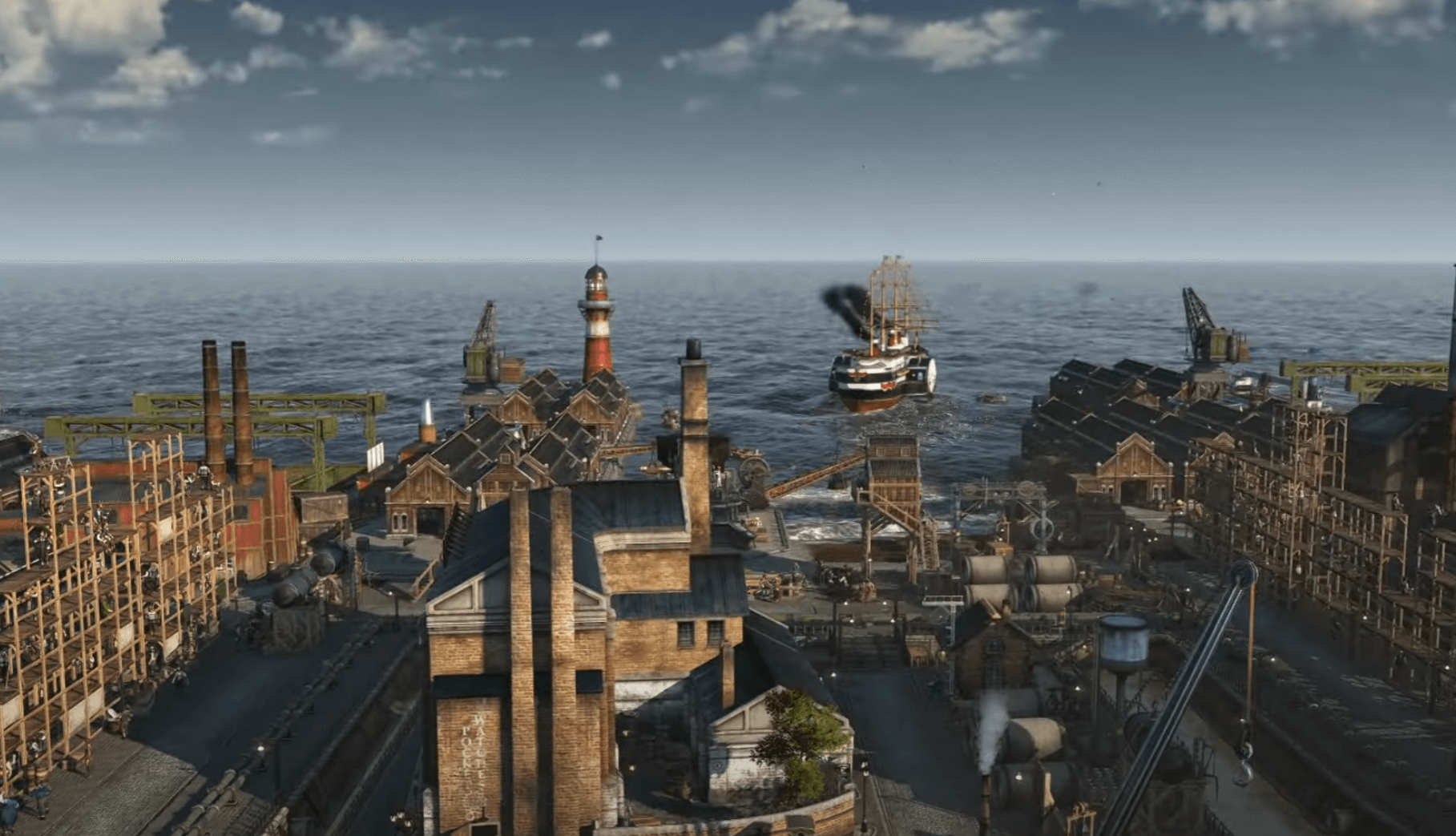
Both Anno 1800 and Civilization 6 are strategy games, but where they start to overlap is in their shared focus on civilization growth and management. Anno 1800 shares the same kind of city-building and resource management that Civilization does so well. You will guide your civilization from the dawn of the Industrial Revolution onward, making the same kinds of decisions on resource allocation, infrastructure development, and diplomacy that you're used to making in Civilization 6. Just as you plan out city improvements and diplomatic endeavors in Civ, in Anno you'll have to balance your resources to create a prosperous economy while also considering your relations with other growing civilizations.
Experience in Civilization 6 will give you a leg-up in understanding the core concepts of Anno 1800. You'll be dealing with city planning, technology development, and resource management. Anno, however, sets itself apart with its more palpable maritime trade system and real-time strategy game-play mechanics. It has a much heavier emphasis on the economic side of running a civilization, which presents new, thrilling challenges for fans of the Civilization series. If you love meticulously planning out your cities and ensuring your civilization's prosperity in Civilization 6, you'll find plenty to love and more in Anno 1800.
Anno 1800 is available on Windows PC, typically priced around $59.99 USD.
18. Hearts of Iron IV
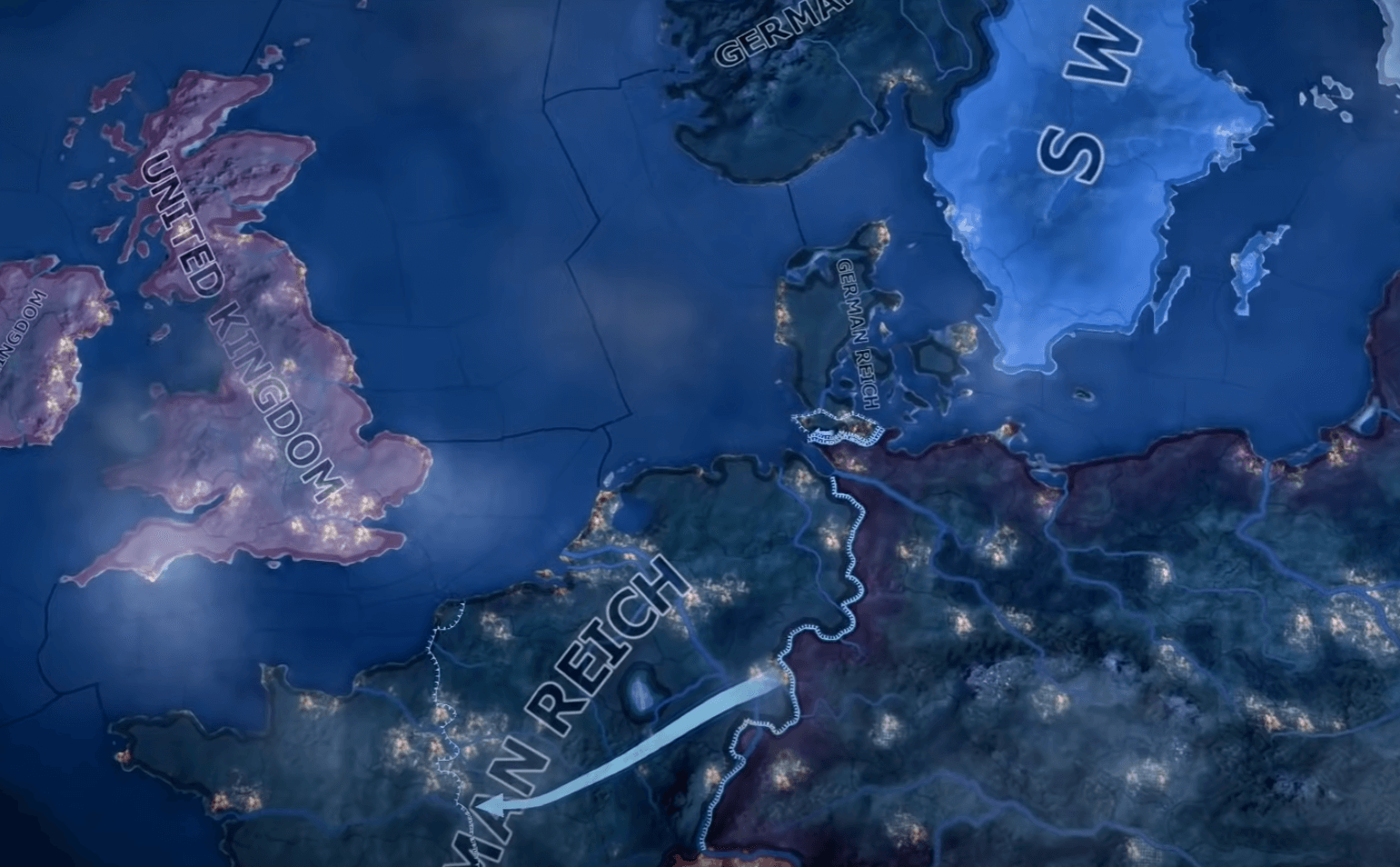
Just like Civilization 6, Hearts of Iron IV is a grand strategy game where you can alter history to your liking. You, as the player, can oversee any nation of your choice during the era of World War II and pave your own strategy to victory. You will manage resources, research technologies, train armies and plan battle strategies, all with the end goal of spreading your nation's influence across the globe. Both games require strategic thinking and planning, where every decision you make can significantly impact the future course of your civilization, or in this case, your nation.
Another similarity lies in the high level of customization and choice available in both games. In Hearts of Iron IV, you can pick any nation participating in the World War II era, each with unique strengths, weaknesses and opportunities. The game invites players to make critical decisions such as forming diplomatic ties with other countries or choosing to invade them, much like Civilization 6 where you form diplomatic relationships, wage wars and compete for wonders. While Civilization 6 focuses more on the expanse of time and technology, Hearts of Iron IV focuses on a narrower time frame but with high depth, bringing more attention to detail in terms of military strategy, resource management, and political maneuvering.
Hearts of Iron IV is available on Steam, typically priced around $40 USD.
17. Imperator: Rome
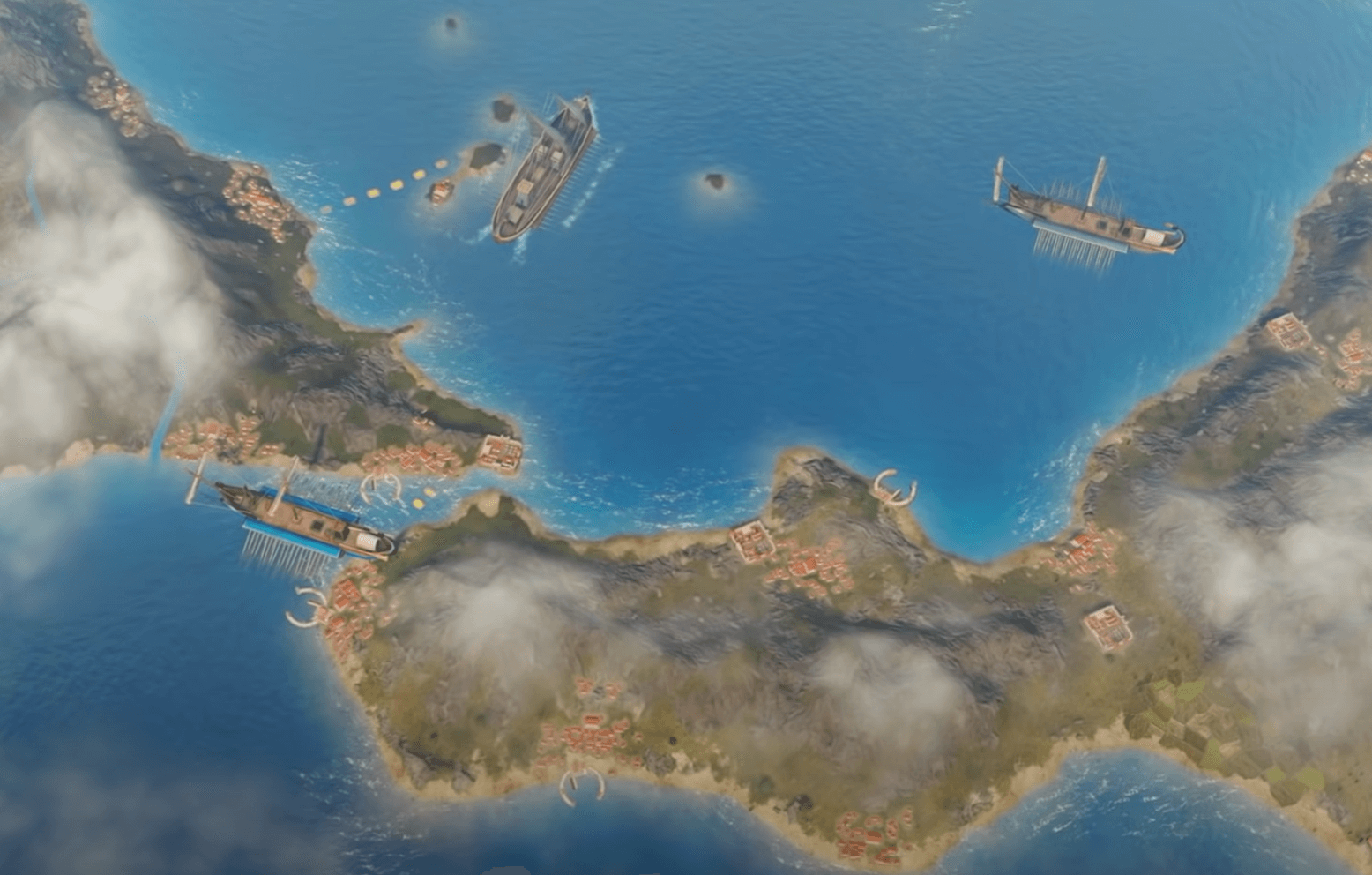
In Imperator: Rome, much like Civilization 6, you take on the role of a leader commanding an expanding empire. You make decisions on a grand scale; managing resources, allocating manpower, developing provinces, controlling trade routes, and engaging in diplomacy and warfare. Both games share a penchant for presenting deeply strategic gameplay where every decision you make, whether it is the laws you enact, the alliances you build, or the battles you engage in, weighs heavily on the future trajectory of your civilization.
Imperator: Rome functions on a time progression system similar to Civilization 6, and it places you in an intricately simulated environment of the ancient world around 304 BCE. Each nation in the game, like in Civ 6, has unique traits and qualities which can be developed and exploited based on your preferred playing style. The real-time tactical battles provide a challenge that's similar to, but more detailed than, the turn-based confrontations in Civ 6. Paradox, the developer of Imperator: Rome, is also known for its vivid presentation of historical detail, giving players a sense of immersion comparable to Civ 6.
Imperator: Rome is available on Windows, MacOS, and Linux platforms, typically priced around $39.99 USD.
16. Warhammer 40,000: Gladius
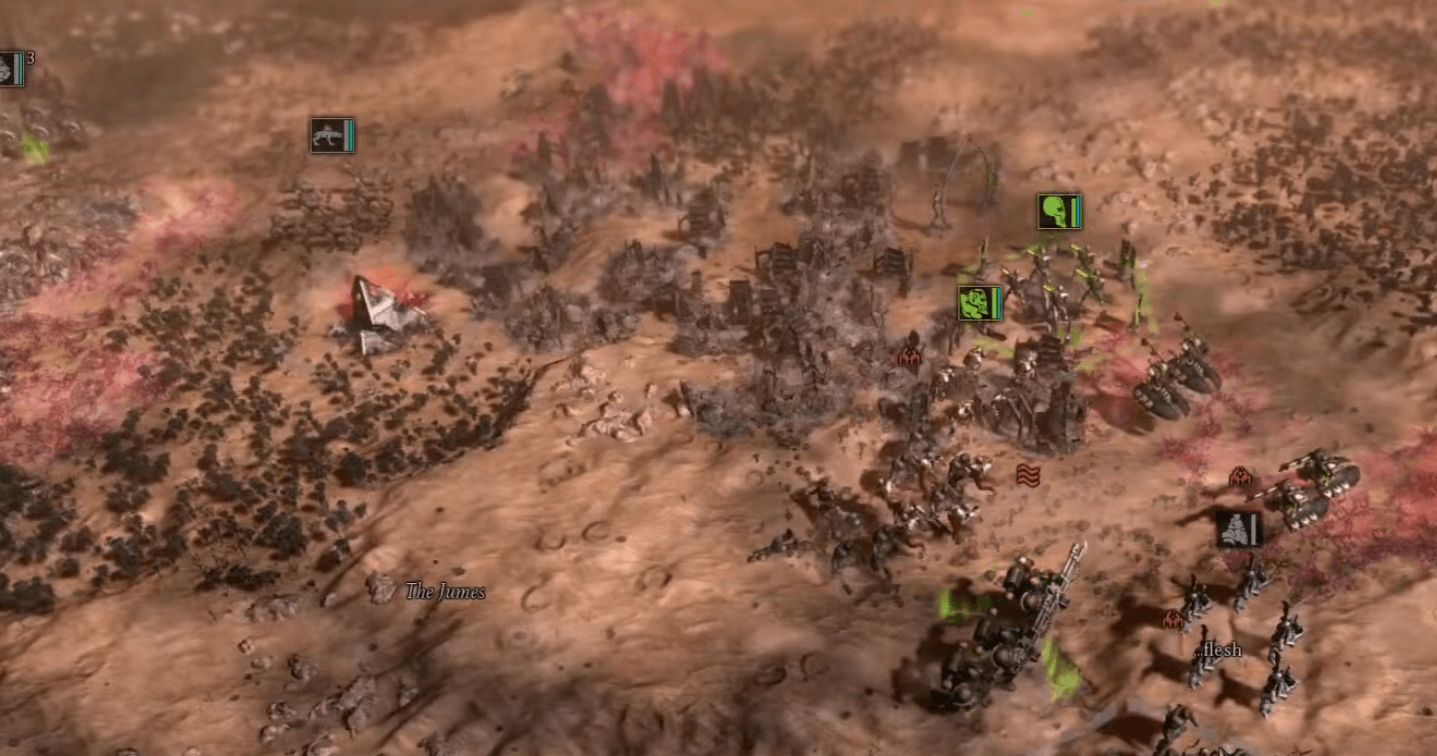
Warhammer 40,000: Gladius absolutely mirrors Civilization 6 in terms of its gutsy "4X" strategy elements. Like Civ 6, Gladius relies heavily on eXploration, eXpansion, eXploitation, and eXtermination, making it a fantastic strategic decision-making environment. You build your prosperity, armed forces, and scientific feat, just as in Civ 6, but with the distinctive Warhammer 40,000 touch. Technology trees, city building, and resource management are all crucial aspects that will give you the same enjoyment you acquired from Civ 6.
Gladius also allows players to engage with their territories in a way that's akin to Civilization 6. The map is procedurally generated, and every game promises a unique, immersive experience. And for Civ 6 players who enjoy the game's multiplayer component, Gladius also allows for online multiplayer battles and cooperative play, making the game as engaging as Civilization's rich history, if not more, with the darkness of the Warhammer 40k universe. So, if you enjoyed the depth and complexity of Civilization 6, Gladius - with its distinctive factions, unique units, and deep lore - is sure to offer a similarly engaging strategic gaming experience.
Warhammer 40,000: Gladius is available on PC platforms, typically priced around $39.99 USD.
15. Master of Orion
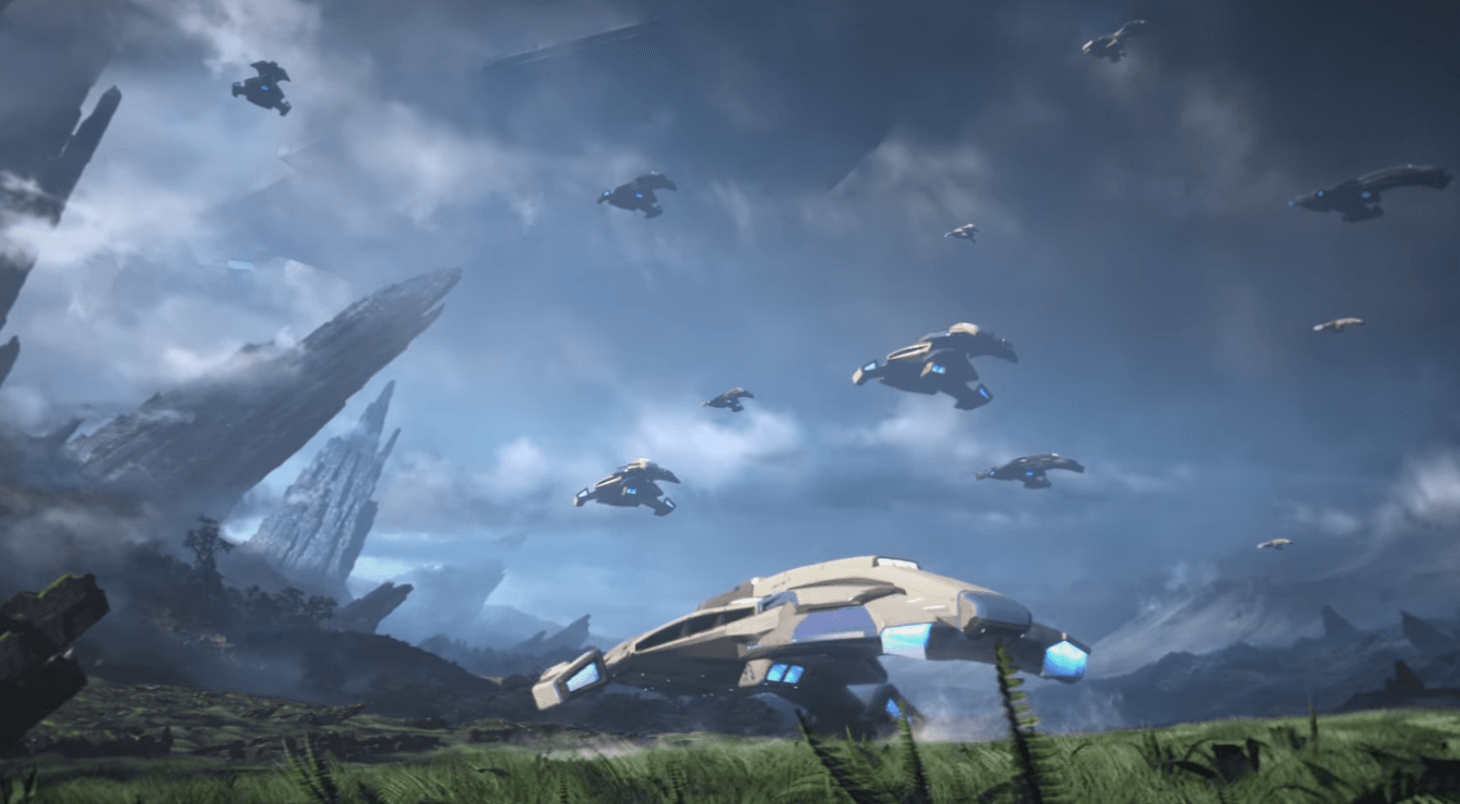
Master of Orion is a game you'll definitely love if you're a fan of Civilization 6. Both games share the meticulous strategic simulation approach but Master of Orion takes it to the space. Instead of managing a civilization from the early ages on earth, you're put in charge of an entire interstellar empire, managing diplomacy, colonization, and development of different race types in various star systems. Much like in Civ 6, you can engage in diplomatic negotiations, research new technologies, build and expand your empire, and manage your resources carefully to become the dominant power.
Another key similarity between Master of Orion and Civilization 6 is the asymmetrical race design. Similar to how each civilization in Civ 6 has its own unique abilities, units and benefits, each race in Master of Orion has distinct strengths, weaknesses, and gameplay nuances. Some races excel at science and exploration, while others are militaristic or economic powerhouses. There's also complexity in the combat and politics. You can engage in tactical turn-based combat and come to power not only by military force but also through economic domination, pioneering technologies, or winning the political votes of your allies and rivals. This gives the game a layer of strategic depth that is reminiscent of Civ 6's varied paths to victory.
Master of Orion is available on PC and Mac, typically priced around $29.99 USD.
14. Galactic Civilizations III
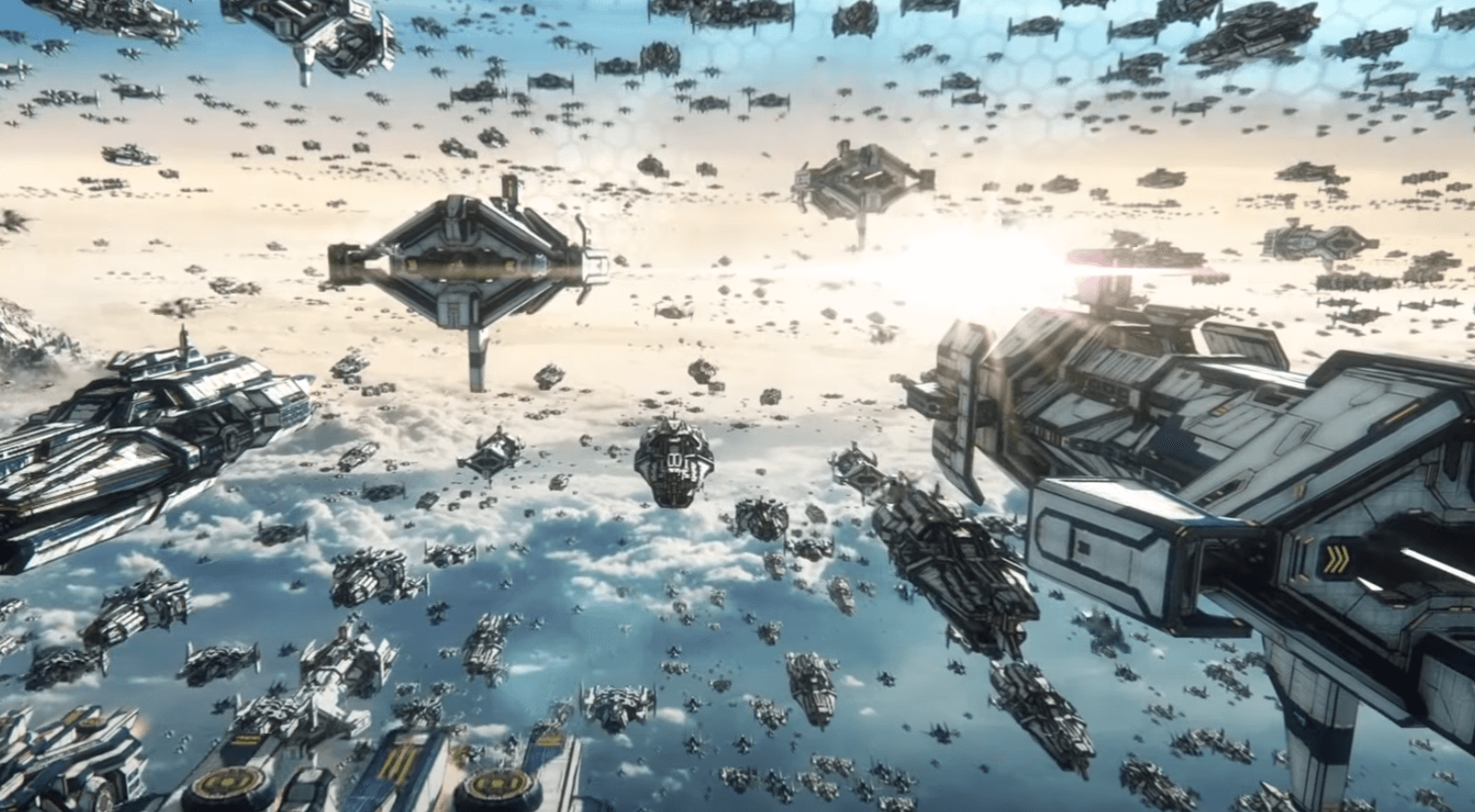
Galactic Civilizations III, much like Civilization 6, is an epic strategy game full of depth and rich in story. Both games share the ethos of building and developing your own empire but Galactic Civilizations III transports the experience to a vast, deep-space environment. Similar to Civilization 6's historical leaders, Galactic Civilizations III lets you choose or customize your own faction leader, with the aim of expanding your culture throughout the galaxy. It offers a broad variety of strategies for achieving victory, either through open conflict, cultural domination, technological superiority, or diplomatic shrewdness, akin to the win conditions in Civilization 6.
You'll find the 4X gameplay structure (explore, expand, exploit, and exterminate) in Galactic Civilizations III, as in Civilization 6, that demands strategic decision making, and rewards long-term planning. As in Civ 6, you're tasked with managing resources, diplomacy, technology, and more against interesting AI opponents. Additionally, in Galactic Civilizations III, as it's set in space, there's an impressively beautiful map filled with galaxies, black holes, nebulae, and more which gives you an enhanced strategic experience and adds variety in terrain much like hills, water bodies, and forests do in Civ 6.
Galactic Civilizations III is available on Windows PC, typically priced around $26.99 USD.
13. Endless Space 2
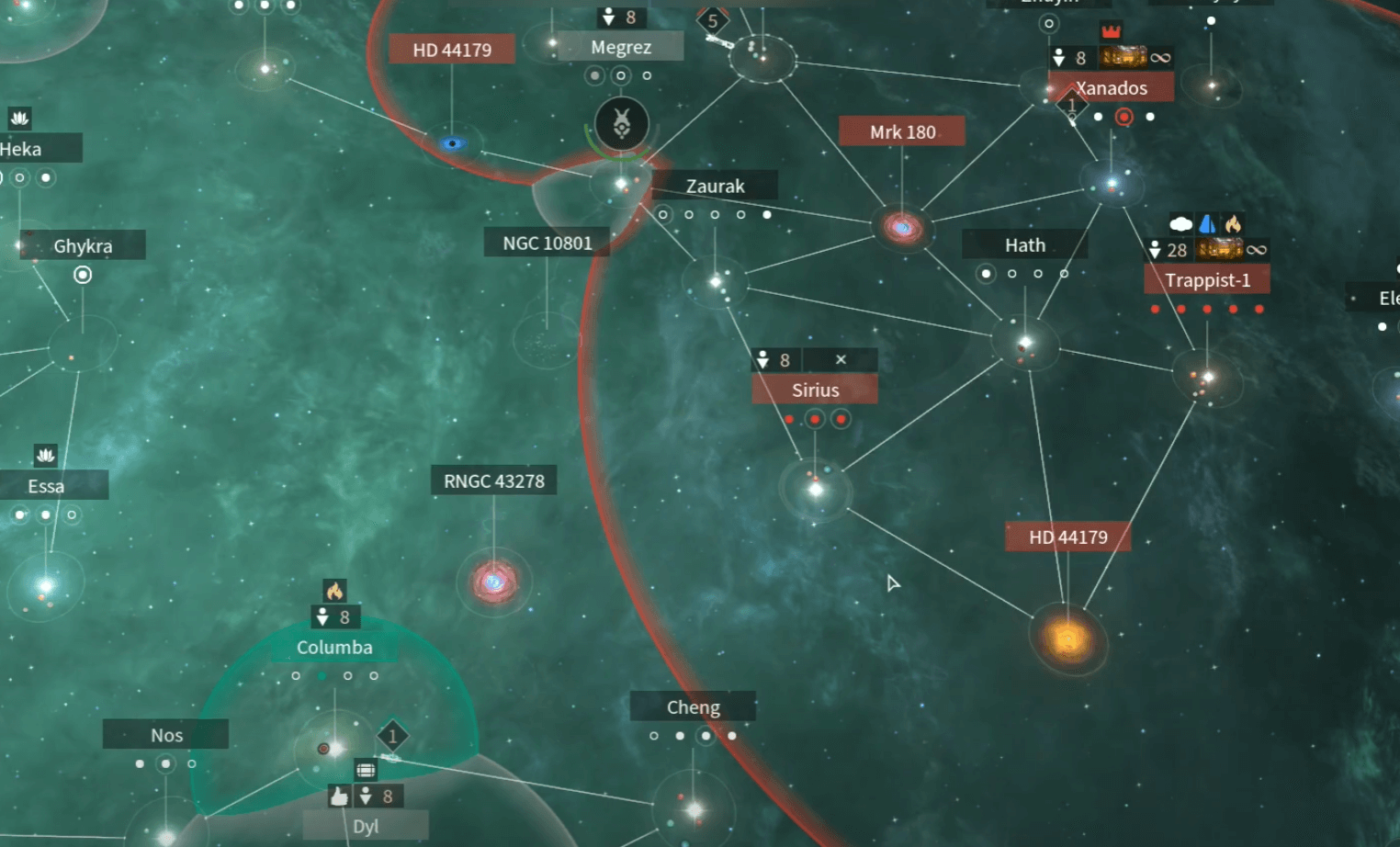
Endless Space 2, like Civilization 6, is a compelling 4X game, which stands for eXplore, eXpand, eXploit, and eXterminate. These games are synonymous with deep strategy experiences, where you construct and manage a civilization, or in this case, an entire space-faring empire. Like Civ 6, Endless Space 2 involves tech progressions, city (or planet) management, and multiple victory conditions. You can win through scientific discovery, dominance in war, or diplomacy, among other ways. The game gives you a sense of vastness of the universe, much like how Civ 6 portrays the broad tapestry of human history.
Another similarity to Civ 6 is that Endless Space 2 offers a turn-based interface. This gives you a chance to carefully plan your course, making it feel much like a chess game on a large, galactic scale. It features diverse races, each with unique sets of characteristics, as in Civilization’s historical nations with different strengths and weaknesses. The ability to custom-design your own civilization, or modify an existing one, will likely appeal to fans of Civ 6's in-depth customization. Unlike many space strategy games, Endless Space 2 places a lot of emphasis on narrative, setting up engaging stories for each race that can steer the way you play, not unlike in Civ 6, where the unique traits of your civilization can shape your strategy.
Endless Space 2 is available on PC, typically priced around $39.99 USD.
12. X-COM: Chimera Squad

X-COM: Chimera Squad shares some remarkable similarities with Civilization 6, making it a great potential pick for fans of the latter. Like Civ 6, X-COM: Chimera Squad is a strategy-based game, giving players the opportunity to plan their moves wisely in order to achieve victory. However, where Civilization focuses on long-term strategies like diplomatic relationships, trade, and technological progression, X-COM tends to be more tactic-centric, focusing heavily on individual operation strategy, squad-unit formations, and meticulous combat scenarios. Nonetheless, the two games fundamentally revolve around the same theme of strategic decision-making, making them quite comparable.
Another intriguing similarity is that both games are turn-based, making timing and careful thinking paramount to success. In X-COM, as with Civilization 6, you must outsmart your opponents by tactically utilizing your units in various scenarios through each turn. The juxtaposition of resource management, which is key in both games, whether it's managing the funding and soldiers in X-COM or civilization development resources in Civ 6, definitely provides a common thread. If the idea of Civilization 6 combined with a deep-story, tactical combat, and a little bit of tension appeals to you, X-COM: Chimera Squad might be just what you're looking for.
X-COM: Chimera Squad is available on Windows and macOS platforms, typically priced around $20 USD.
11. Crusader Kings III
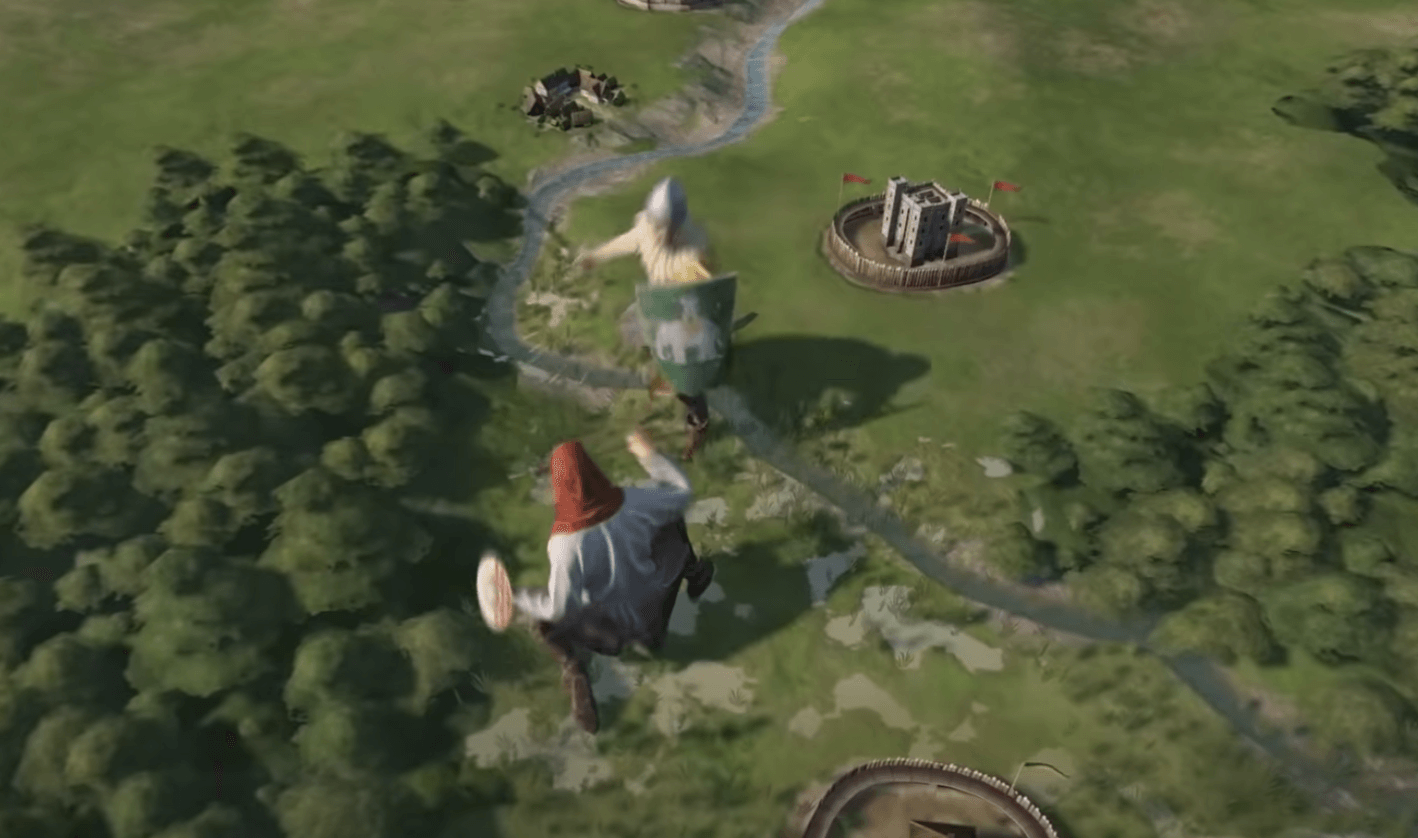
Crusader Kings III, like Civilization 6, is a grand strategy game involving strategic planning and real-time decision-making. You will recognize the typical 4X elements that you appreciated in Civ 6: Explore, Expand, Exploit, and Exterminate. But at the same time, it tells a more personalized story, focusing a lot more on the role-playing aspect and the characters you're ruling with. Both the games also incorporate the element of time progress, spanning hundreds, if not thousands, of years, giving you a historic, immersive gaming experience.
You'll develop provinces, conduct diplomacy, and wage war just like in Civilization 6, though in Crusader Kings III, it gets more complex and comprehensive. This complexity doesn't mean it's less enjoyable; on the contrary, it's intriguing as it challenges your analytical, decision making, and strategic planning skills to a much greater degree. Plus, the historical accuracy and depth you'll find in Crusader Kings III in terms of events, characters, culture, and context is really unparalleled. So, if you loved the keen balancing act of Civilization 6 and are ready for a deeper dive into strategy gaming, Crusader Kings III is a perfect choice!
Crusader Kings III is available on Windows, macOS, and Linux platforms, typically priced around $50 USD.
10. Surviving Mars

If you are a fan of Civilization 6 then Surviving Mars might just be your next big game venture. Much like Civ 6, Surviving Mars is a strategy game, revolving around the concept of building and managing a civilization, but with a twist – your new colony is on Mars. The game gives you the chance to don the hat of a future space colony's chief manager, responsible for controlling the limited resources, setting up new buildings, dealing with the intricacies of Mars, and making decisions that can have serious impacts on the survival and growth of the colony. The city-building gameplay mechanics, the level of detail in strategizing, and the careful balance of resource management bear significant resemblances to the much-loved aspects of Civ 6.
Being a Paradox Interactive game, Surviving Mars presents you with a level of unpredictability that's guaranteed to keep you on the edge of your seat. Like Civ 6, each playthrough provides a unique experience. The role of research plays a big part in this game, similar to how it does in Civilization. The technologies you research pave the path to success, making each decision significant and requiring careful strategizing. The attention to detail in Surviving Mars and the numerous challenges posed by the environment add to the game’s appeal, drawing parallels to overcoming obstacles in Civ 6. Each setback faced and every milestone achieved feels rewarding, resulting in a fulfilling gameplay experience.
Surviving Mars is available on PlayStation 4, Xbox One, and PC, typically priced around $30 USD.
9. Tropico 6

Games like Tropico 6 and Civilization 6 share an intricate infrastructure of city development strategy and political simulation. In Civilization 6, you've built civilizations from scratch and you've probably loved the complex gameplay loop of harvesting resources, researching technologies, and engaging in diplomacy or war with other civilizations. Well, Tropico 6 offers a quite similar experience, but with more emphasis on the role of a leader. You step into the shoes of El Presidente, the leader of an island nation, where you must balance the needs of your citizens against the world's superpowers, all while keeping your own political regime secure. You'll also have to manage your resources, build your cities and plan infrastructures in a way that's not too dissimilar from Civ 6.
However, Tropico 6's key feature that sets it apart, and arguably makes it more intriguing, is the satirical political layer. The game is full of witty commentary and humor that, combined with its bright and vibrant art style, gives it a unique charm. In essence, it's like Civ 6 but with a light-hearted political twist. The more personalized leadership, refined economy, and detailed citizen needs system definitely create a sense of close relation to your people and adds another layer of depth to your decision-making process, making Tropico 6 a great follow-up play for any Civ 6 fan.
Tropico 6 is available on PC, MacOS, Linux, PlayStation 4, and Xbox One, typically priced around $49.99 USD.
8. Sins of a Solar Empire: Rebellion
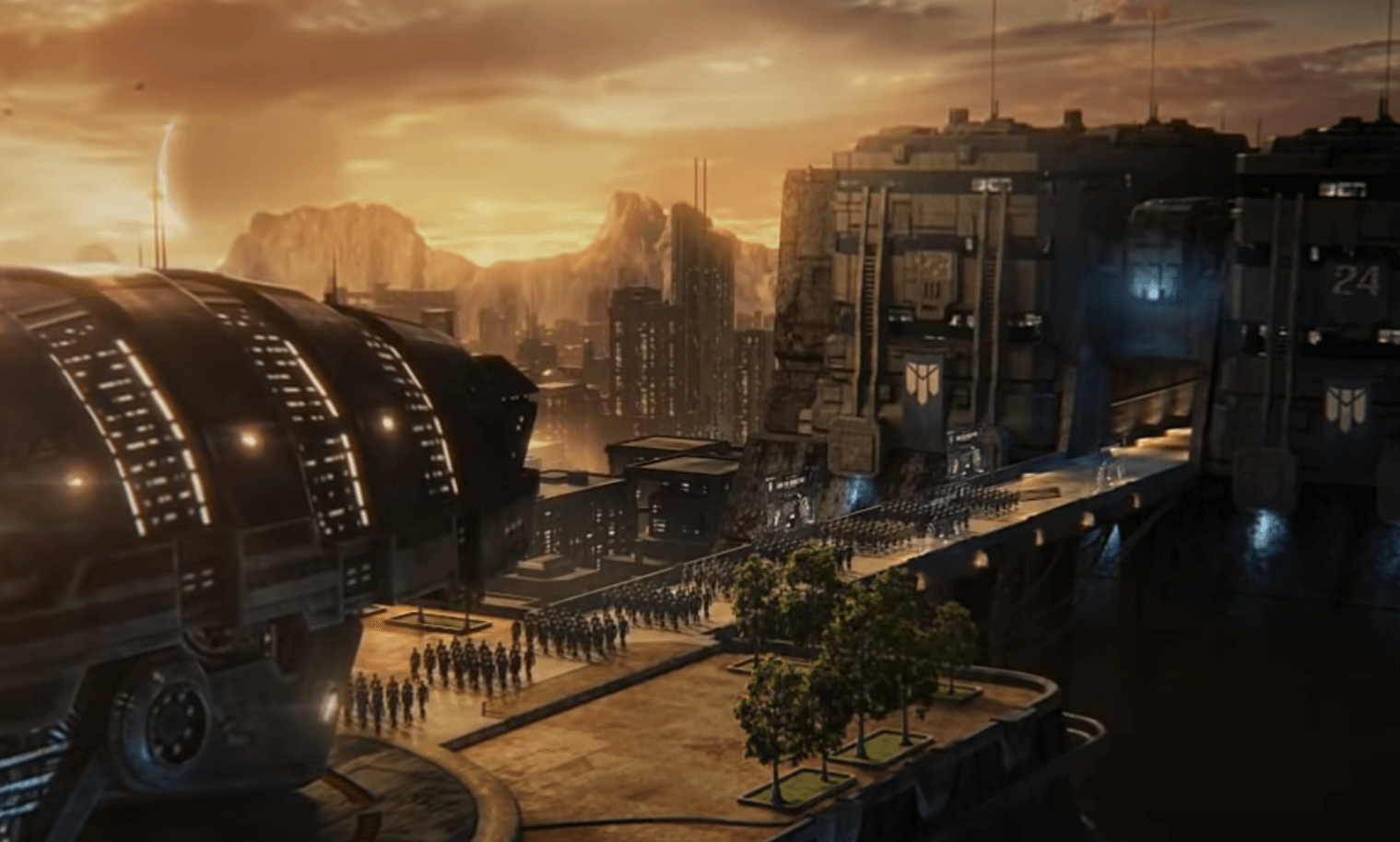
Similar to Civilization 6, Sins of a Solar Empire: Rebellion offers an in-depth strategy experience, that is both entertaining and challenging. A real-time 4X strategy game set in a science fiction environment, its gameplay builds upon the same foundation of exploration, expansion, exploitation, and extermination found in Civ 6. You're given a vast galaxy to stake your claim on, with massive fleets, diplomacy, research, and interstellar warfare. The grand strategy common in both games evokes a real sense of scale and strategy.
Sins of a Solar Empire: Rebellion, just like Civilization 6, lets you choose different races each with unique bonuses and distinct characteristics. Just as you have to adapt to new strategic situations with each civilization in Civ 6, Rebellion also requires this adaptability due to its varying race dynamics. Furthermore, the game shares a similar semi-random map generation system with Civ 6, ensuring each playthrough is unique and offers a new experience. The game also offers a multiplayer mode, extending your strategic experience to an online realm and allowing for alliances and teamwork just like the multiplayer in Civ 6.
Sins of a Solar Empire: Rebellion is available on Windows PC, typically priced around $40 USD.
7. StarCraft II: Wings of Liberty
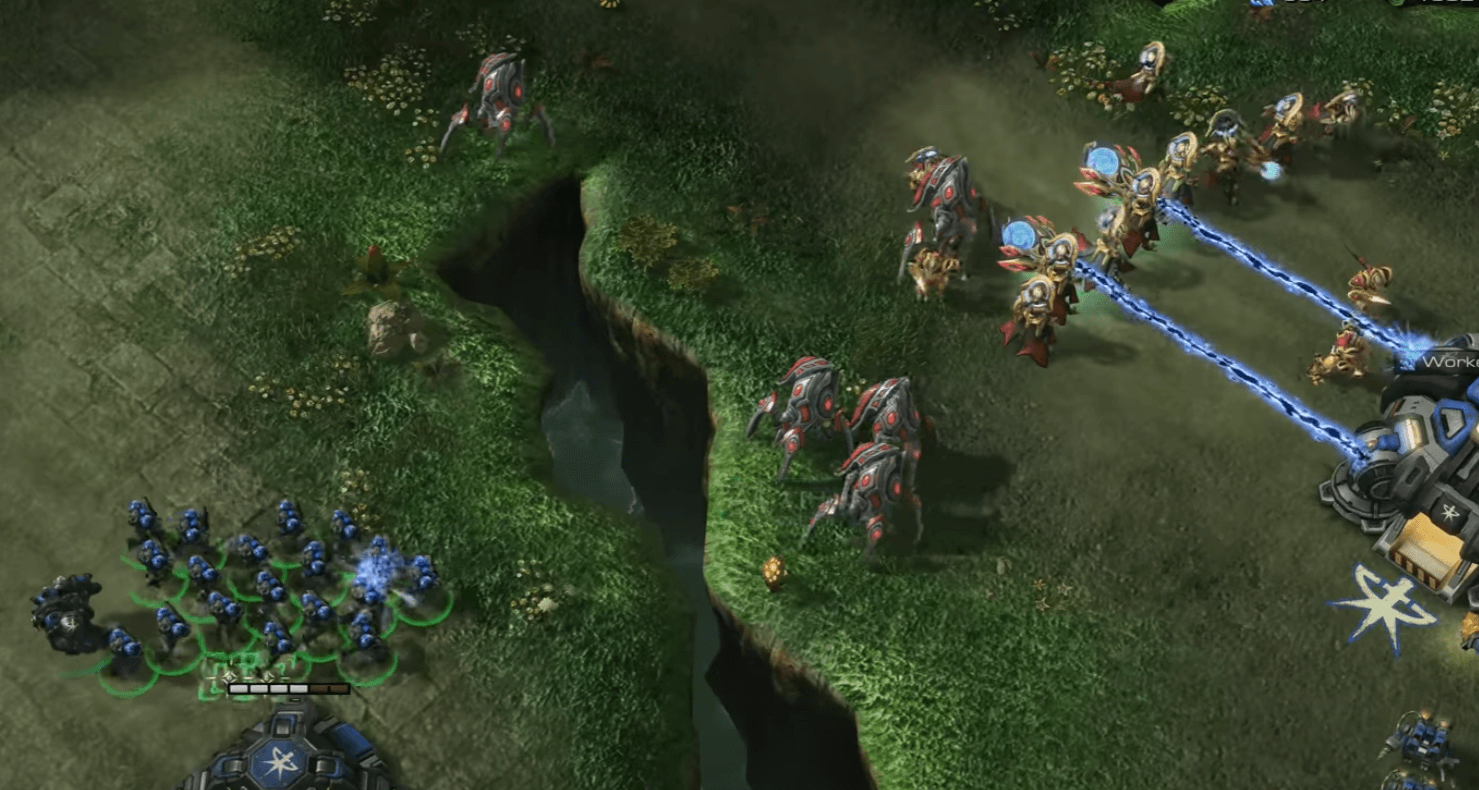
StarCraft II: Wings of Liberty and Civilization 6 share many similarities in terms of strategic gameplay which makes them comparable. Both games place a strong emphasis on resource management, economic growth, technological advancements, and the construction of infrastructure. Gameplay in Wings of Liberty, like Civ 6, requires you to build and defend your base, while also managing your workforce with optimal efficiency. You have to meticulously plan your strategies and outwit your rivals to lead your civilization or faction to victory. It's all about long-term strategic planning in a complex and dynamic game world.
Another key parallel between StarCraft II: Wings of Liberty and Civilization 6 is the intense balance of diplomacy and warfare. Whether you're dealing with alien factions in StarCraft or ancient civilizations in Civ 6, you have to navigate intricate diplomatic relationships and make critical decisions that will impact your game's trajectory. Each game offers you an array of strategies: you can choose to dominate through military power, try to win hearts through diplomacy, or advance serenely at the forefront of technology. The level of depth and complexity in both games will definitely appeal to any Civilization fan looking to explore new arenas.
StarCraft II: Wings of Liberty is available on PC, typically priced around $20 USD.
6. Victoria II
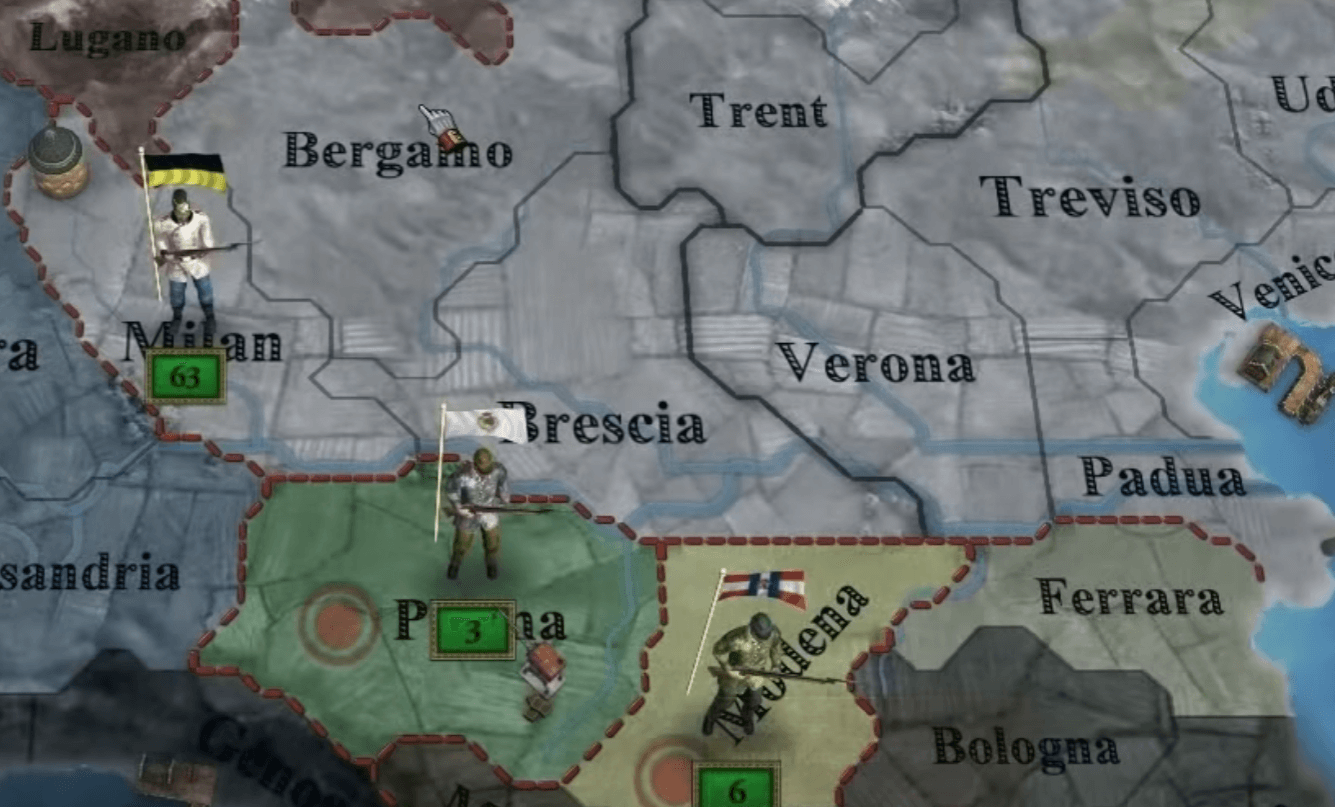
Victoria II is a grand strategy game that shares a lot of the empire-building aspects with Civilization 6. Just like in Civ 6, you are tasked with managing an entire nation, meticulously balancing politics, economy, diplomacy, and warfare to protect and expand your dominion. You will love the rich historical setting of Victoria II that spans the period from the early 19th century to the early 20th century, offering a profound immersion into the history of the world. If you're passionate about micromanagement and strategic planning in Civ 6, you'll be equally enthralled by the level of detail and control you have in Victoria II, down to controlling individual provinces within your nation.
One of the strengths of Civilization 6 is its turn-based strategy gameplay, allowing you a lot of time to plan your strategy. While Victoria II follows a real-time strategy format, it also allows you to pause the game at any time to make crucial decisions without any time pressure, offering a similar strategic experience. Additionally, Victoria II provides an intricate diplomacy system that might seem familiar because, like Civ 6, international relations play a significant role, and understanding each nation's motivations and goals can turn the tide of the game. Also, both games feature technology research and societal/cultural progress that impact your empire's strength and stability, along with extensive modding support that greatly extends the life and enjoyment of the game.
Victoria II is available on Windows, Mac, and Linux, typically priced around $20 USD.
5. Cossacks 3
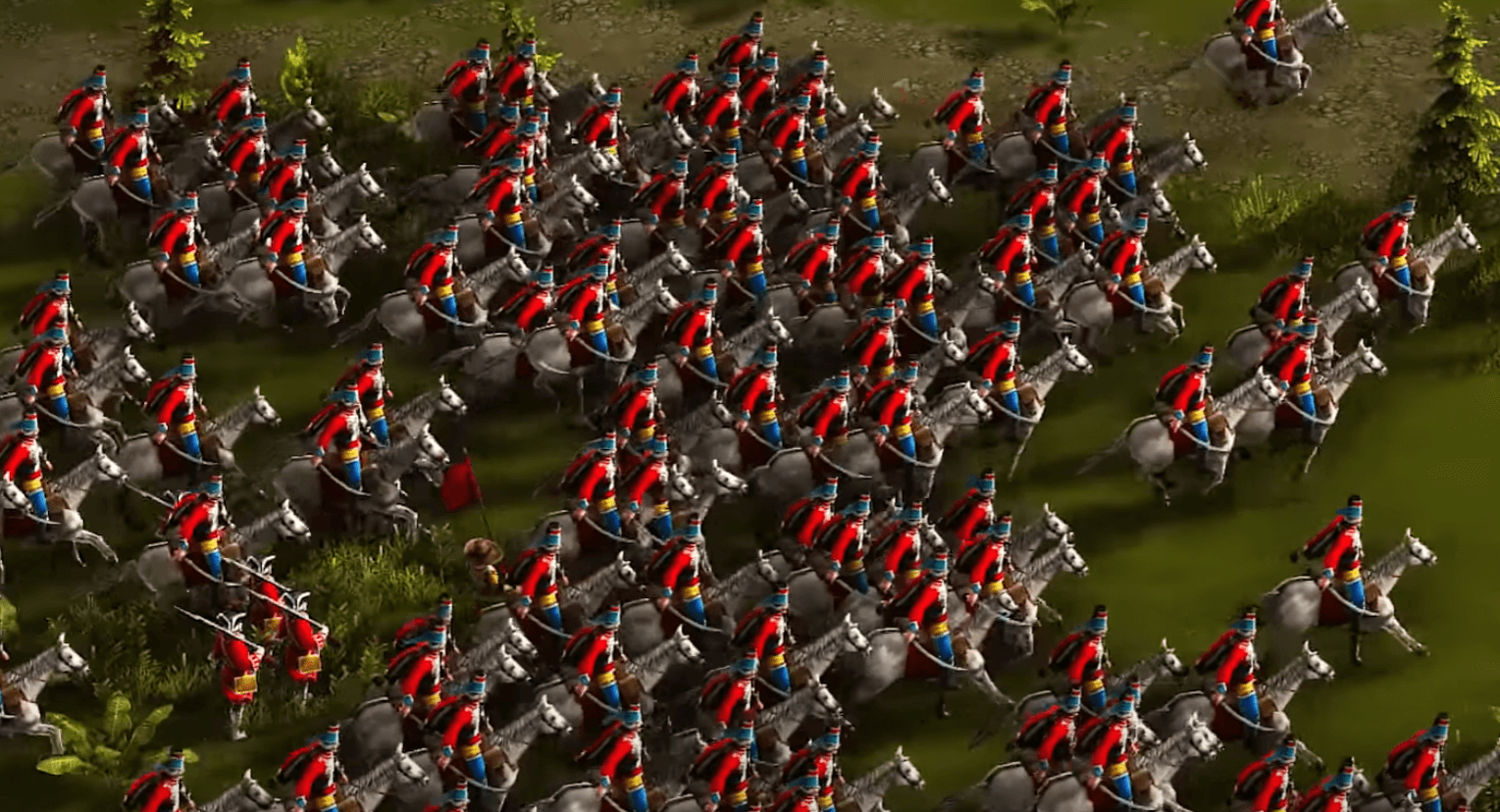
At first glance, Cossacks 3 might seem like a different beast altogether given its focus on real-time strategy, but looks can be deceiving. Much like Civilization 6, Cossacks 3 is steeped in history and pays meticulous attention to the details of the era it represents, which is, in this case, the 17th and 18th centuries. There's a heavy emphasis on base-building, resource management, and strategic troop deployments, core elements that fans of Civilization 6 will find very familiar and appealing. The societal growth element is also comparable, as you'll need to develop technologies, erect buildings, and manage a population, which provides a similar depth of gameplay.
The requisition of resources like food, wood, and stone is a pivotal part of the game, just like the trade and resource gathering in Civilization 6. Cossacks 3 also showcases a broad scope with the inclusion of 12 nations, each boasting unique architectural styles, units, and technological trees - much like the distinct civilizations in Civ 6. Striking a balance between civilization growth, economic stability, and military prowess is the key to succeeding in both games, lending a deep level of strategy and intricate gameplay that can pique the interest of any Civ 6 enthusiast.
Cossacks 3 is available on PC, typically priced around $20 USD.
4. Homeworld: Deserts of Kharak
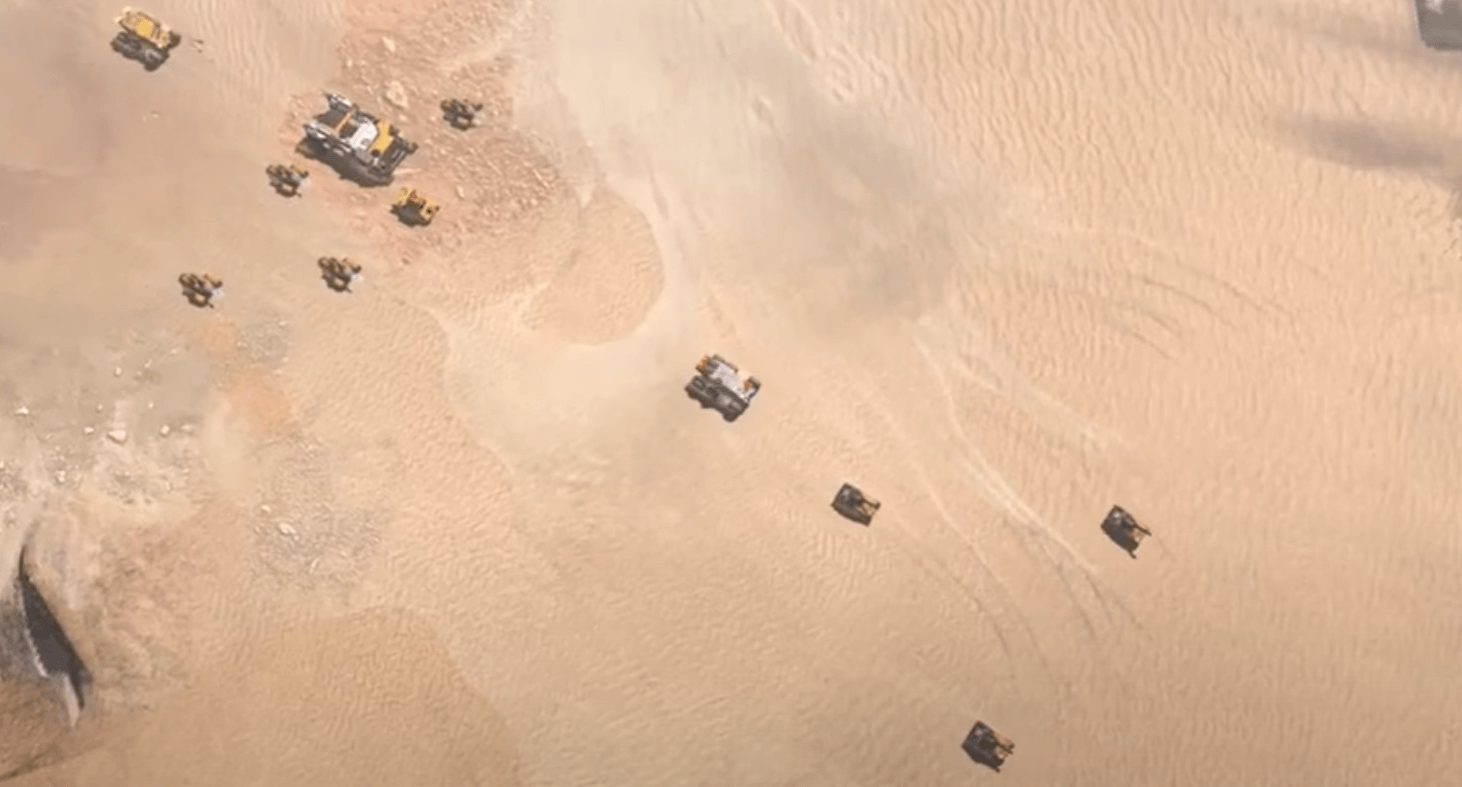
Homeworld: Deserts of Kharak and Civilization 6 share a few key elements that make them great strategy games. Both uniquely blend the elements of turn-based and real-time strategy gaming, offering the player a broad scope for strategic planning and tactical decision-making. Just like in Civilization 6, where you manage resources, conduct research, and build out your cities over time, in Deserts of Kharak you manage a mobile landship, gather resources, conduct research to unlock new units and abilities. The extensive tech tree in Deserts of Kharak will remind you a lot of Civilization's mechanic to progress through different eras and streamline your infrastructure and military might according to your chosen strategy.
Both games also put a heavy emphasis on environmental strategy. In Civilization 6, the terrain plays a huge role in determining the productivity of your cities and the tactics you employ in battle. Warriors are more effective on open plains, while catapults should be launched from hills to maximize their range. Similarly, in Deserts of Kharak, the vast desert landscape isn't just a canvas on which the action takes place, but a key factor in your planning and tactics. The 3D terrain provides high ground for gaining a sight and range advantage, and valleys for ambushing enemies, making terrain and maneuvering just as central to strategy as unit management.
Homeworld: Deserts of Kharak is available to play on Windows and MacOS platforms, typically priced around $50 USD.
3. The Settlers 7: Paths to a Kingdom
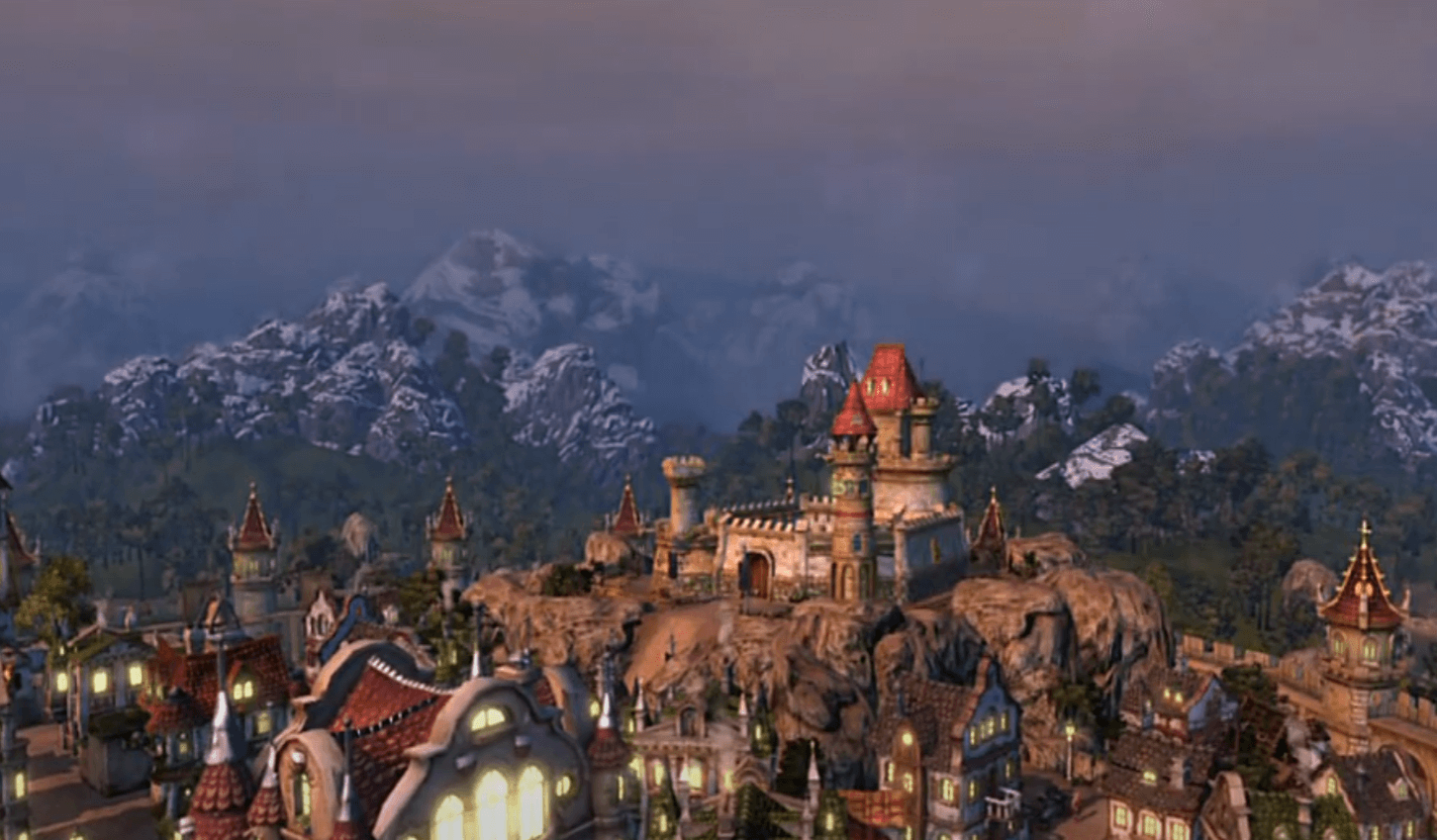
Just like Civilization 6, The Settlers 7: Paths to a Kingdom offers players an exciting journey through history, encompassing a rich real-time strategy gaming experience that's primarily focused on city-building and economic management. It's a visually stunning game in which you craft your kingdom step-by-step, from humble beginnings to an empire's glory. Like Civ 6, you choose from different leaders, each promoting a particular gameplay style, and you shape your kingdom using economic, diplomatic, and military means. You get to experience these immersive, strategic developments in depth, with a keen eye on resource management and a wise plan - similar to the strategic requirements that you enjoyed in Civilization 6.
Additionally, The Settlers 7 enhances the gameplay experience with a significant enhancement in multiplayer modes - a key feature maintaining the competitive spirit of Civilization 6. You can enjoy trading mechanics, research technologies, engage in diplomatic initiatives, and go to war using various tactics to outsmart your foes. Like Civilization 6, the game cycles through different eras, each bringing its own set of challenges and benefits that affect the trajectory of your kingdom. The fantastic thing is, despite the similarities with Civ 6, The Settlers 7 still maintains its unique flair, offering refreshing gameplay elements that give a whole new twist to your love for strategic games.
The Settlers 7: Paths to a Kingdom is available on PC, typically priced around $20 USD.
2. Sid Meier's Alpha Centauri
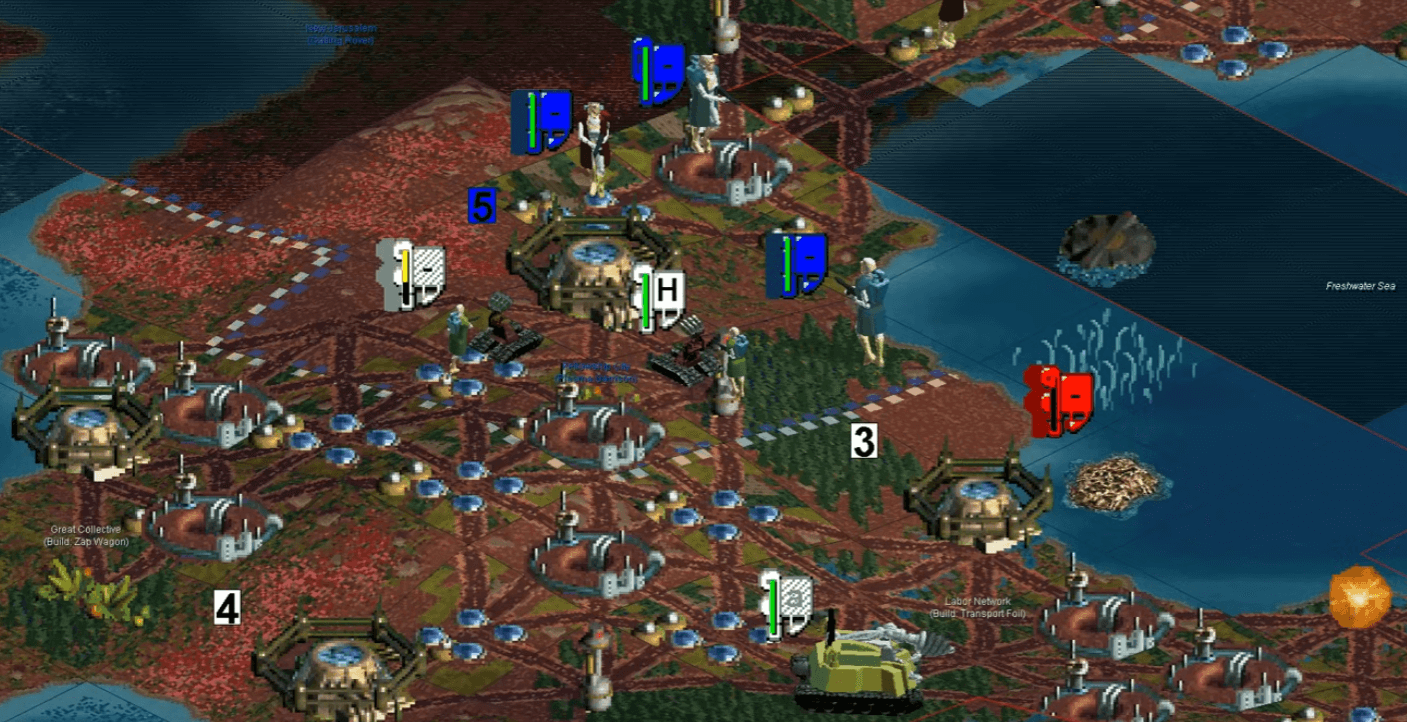
If you're a Civ 6 fan, you'd likely find Sid Meier's Alpha Centauri fascinating. Built in the same vein as the Civilization series, Alpha Centauri lets you embark on space conquests after Earth becomes uninhabitable. It takes the tried-and-true mechanics of the Civilization games you love. It's a turn-based strategy game where you establish bases, deploy terrain improvements, engage in diplomacy, and orient your faction's scientific development. Alpha Centauri offers multifaceted gameplay with diverse victory conditions: economic, diplomatic, and conquest, among others, similar to the Civ 6 backbone.
Dive into the rich lore of Alpha Centauri that presents an immersive narrative, which feels like a rewarding evolution of Civilization’s written story. The seven different factions you can play as have their unique abilities and strategies, much like the cultures and nations in Civ 6. Each character in Alpha Centauri, from the UN Peacekeepers to the Spartan Federation, has their own technological skills and social policies which mold your faction's ideology. Inventions like terraforming, satellite deployments or secret projects (much similar to Civ's Wonder system) also add to the strategic depth you've enjoyed in Civilization 6.
Sid Meier's Alpha Centauri is available on Windows, typically priced around $5.99 USD.
1. The Battle for Wesnoth
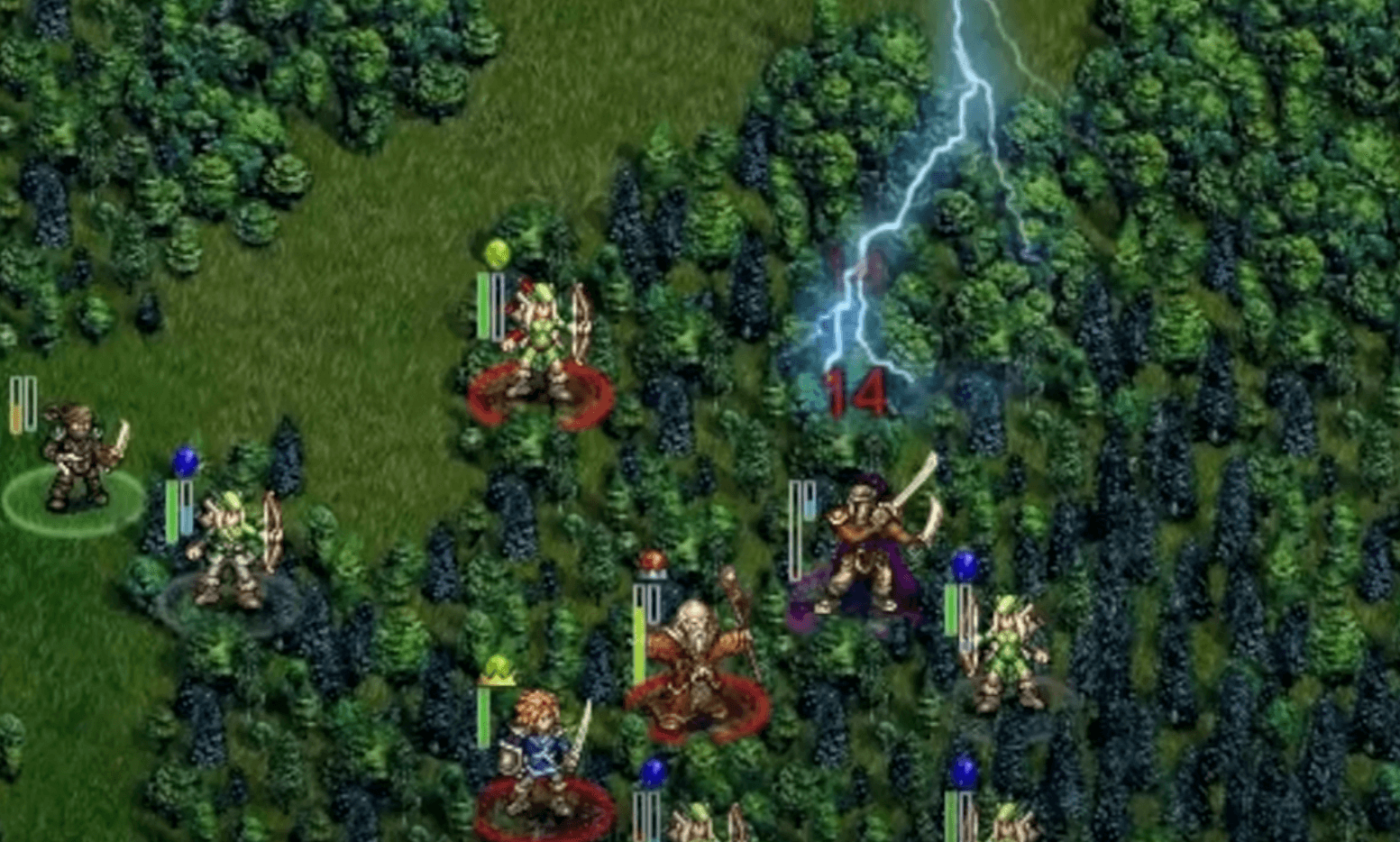
One way The Battle for Wesnoth is similar to Civilization 6 is in strategy building. Just like in Civ 6, The Battle for Wesnoth requires careful planning and tactical moves to advance. You need to effectively manage your resources, build cities, and engage in diplomatic negotiations, something all Civ 6 gamers are accustomed to. The game even features exploration as a key component, much like in Civ 6 where uncovering the map is crucial.
Fans of Civilization 6 will appreciate the variability and replayability in Battle for Wesnoth. This open-source strategy game features a wealth of user-created content, including custom scenarios and campaigns, each with unique mechanics and worlds to explore. Civ 6 has a similar draw, where different leaders, map setups, and strategy paths keep each game session fresh. Furthermore, Battle for Wesnoth's gameplay is turn-based, using hexagonal tiles just like Civ 6, this makes for familiar game playing and tactical decision-making.
The Battle for Wesnoth is available on Windows, MacOS, Linux, iOS and various other platforms, typically priced around $0 USD as it is an open-source free game.
You've reached the end! Check out the home page for more informative articles on your favorite games.